|
In today's fast-paced world, it's common to feel inundated and believe we're incapable of handling our daily obligations. Stressful circumstances can arise both in our professional and personal lives, making it challenging to navigate conflicts in high-pressure environments. This course provided participants with the opportunity to explore tools for managing and overpassing conflict and stress through theoretical concepts and practical exercises. The new edition of the course “Stress and Conflict Management: the way to resilience and satisfaction” took place in Tenerife from 20/3/2024 to 22/3/2024 The participants came all together, with Katrín, Jónína, Ástríður, Jonina, Adalbjorg, Sigridur, Johanna, Sigridur, Thrudur, Svandis, Inga, Gudlaug, Kristjana and Hrafnkatla from University of Iceland in Iceland. During the initial session, attendees engaged in group brainstorming sessions into the concept of stress. Moderate levels of stress can yield positive outcomes, motivating us to reach our objectives or meet deadlines. Participants learned to differentiate between detrimental Distress and beneficial Eustress. Throughout the course, they acquired an array of cognitive and behavioral strategies, to enhance their organizational and time management competencies, while exercises such as controlled breathing, muscle relaxation, and visualization were practiced to raise stress resilience. Empathy emerged as a principal theme in conflict resolution discussions. Demonstrating empathetic responses can be challenging, particularly when we haven't directly experienced another person's emotions. However, empathy is a skill that can be improved, and participants gained insight into distinguishing it from alternative responses. Effective communication is imperative for conflict resolution. Participants explored diverse communication styles and engaged in group exercises where each member contributed to resolving a conflict scenario. Despite the challenges of conflict resolution, the activity highlights its potential for personal and professional growth. This approach is transferable to various settings, including workplaces and classrooms. Given the diverse cultural backgrounds of the participants, the course promotes meaningful exchanges and opportunities for shared learning. Individuals possess the necessary tools to navigate stressful situations and highlighted the potential for positive outcomes even amidst conflict. Discover more about this course here.
It is not always easy to hold the classroom inspired, engaged and enthusiastic when it comes to teaching. This is when ICT tools such as apps and web platforms become crucial for teachers to communicate and share knowledge while also maintaining students’ attention. Today it is essential to know our way around interactive learning to offer our students an option and non-traditional style of learning and keep them involved. The new edition of the course “Integrating ICT and new technologies into teaching and education” took place in Palermo from 17/03/2024 to 23/03/2024. The participants came from across all Europe, with Jana from Saint Nicholas Catholic School in Slovakia, Alvin from Mencia de Mendoza in Netherlands, Ilze and Madlēna from Talsi State Gymansium in Latvia, Alba from Lopez De Santiago Consultores SL in Spain, Dorothee from University of Potsdam in Germany and participants from three different schools in Czech Republic: Katerina e Milada from Slezske gymnazium Opava, Soňa from Gymnázium Zlín and Karel from Gymnázium, Český Krumlov During this course, the participants learnt how to use a vast field of digital tools and integrate them into their teaching approaches. We started the course exploring the simple and versatile applications for creating virtual whiteboards and collaborative walls that can create entertaining and attractive online lessons and learning experiences individually or in collaboration adding multimedia contents. These applications are also useful for class discussions, brainstorming and group work. Then we looked at the simplest and easiest tools to make interactive presentations that are essential for teachers to engage their students. Indeed, in crafting a more dynamic presentation, the teacher can request the opinion of the class by proposing polls, generating word clouds, and asking for questions or feedback on the topic being presented. Moreover, the participants could dip into the technological world with different tools for many practical games and activities to do together in the classroom such as virtual quizzes, flashcards, crosswords, spinning wheels, posters collages and much more. Another important topic of the course was Artificial Intelligence. The group became familiar with ChatGPT and other AI-powered tools explored during the week, acquiring insights into the seven elements of a good prompt. Through an interesting discussion, they analysed all the potential, the benefits but also the traps of using AI tools without sufficient knowledge of them. The last part of the course was dedicated to creating interactive video lessons on a wide range of topics. In fact, in recent years, traditional education left more space for virtual lessons and online classes which allow teachers to introduce or wrap up a subject, personalize learning, “break up” the lesson and make it more engaging and to give homework. Furthermore, we showed a tool for creating escape rooms: this is useful but also fun activity to encourage critical thinking, teamwork and communication skills, along with reinforcing subject matter expertise. This course lets participants have an important confrontation with each other and learn from their shared experiences. They left this course with a wide knowledge of interactive learning and a new collection of tools, ready to use in their classrooms for all kinds of subjects. This approach will surely increase the students’ imagination, engagement, attention and motivation and help make the learning process a fun and involved activity! Discover more about this course here.
Teaching languages in the 21st century has become a rapidly evolving process. With the advent of new technologies and Artificial Intelligence, teachers now have a world of possibilities to explore and implement in their classrooms. Using these new tools can offer significant advantages to students in language learning. These innovative apps and AI tools can provide concrete support to teachers, enabling them to create more effective and engaging teaching methods for both foreign and native languages. As digital skills continue to gain prominence in education, students remain motivated, engaged, and enthusiastic about learning through digital platforms. Incorporating technology into language learning allows students to actively participate in the learning process. The latest edition of the course “Teaching languages in the digital era: the best apps, AI tools and ICT solutions for learning languages” took place in Palermo from 17/03/2024 to 23/03/2024. The participants came from all across Europe, with Kseniia from Docemus Privatschulen GmbH in Germany, Signe from Tallinn Folk High School in Estonia, Malgorzata from Omnia in Finland, Tatjana and Bente from Briga AS in Norway and Maria Teresa from Pensionnat Saint-Joseph de Cluny in France. Throughout this course, participants actively engaged in a multitude of practical activities aimed at providing hands-on experience with various digital tools. The group gained proficiency in integrating these tools into their teaching methodologies, enhancing their pedagogical approach. On the first day, the trainer introduced the course and highlighted the benefits of utilizing a virtual whiteboard in the classroom. Participants had the opportunity to practice collaborative tools for visual brainstorming, and web platforms designed for collaborative content sharing and organization among the group. As the course progressed, the group gained familiarity with tools for vocabulary testing and revision, interactive language quiz creation, matching pair exercises and grammar review. The group explored and practiced versatile digital platforms, and got to know how to deliver interactive presentations, facilitate revision sessions, conduct visual brainstorming for vocabulary review, and assess students through quizzes and collaborative activities. Artificial Intelligence was the focus on the fourth day of the course. The group became acquainted with ChatGPT, gaining insights into the seven elements of a good prompt. They engaged in discussions surrounding the potential, advantages, and pitfalls of using AI tools without adequate knowledge. Additionally, participants explored other AI powered tools useful for teaching. On the final day, the group gained familiarity with platforms that can be used for digital debates, video lessons, digital resources to gamify the classroom and foster critical thinking. These templates are versatile resources that can be utilized across different stages of the learning process and cater to students of all ages, and provide educators with the flexibility to engage students in a variety of activities that support their learning objectives. Throughout the course, participants discovered various web platforms dedicated to creating language presentations and learning materials. They created multimedia contents and showcased their creations in a motivating and engaging environment. In addition to enhancing their creativity, participants gained confidence in working both independently and collaboratively by actively practicing with digital tools. The exchange of best practices among teachers from across Europe and cultural activities fostered a delightful multicultural atmosphere from start to finish. Learning languages can indeed be challenging, but integrating technology into the classroom offers numerous advantages and possibilities. By sharpening their digital literacy skills, teachers can enhance language teaching and assessment, transforming ordinary lessons into immersive experiences that captivate students’ attention and facilitate deeper learning.
This course rotated around positive practices in the classroom. The participants reflected on their concept of the "perfect classroom environment", and were provided with the abilities of compelling classroom management to encourage improvement. The course points to bolster classroom tool building and positive climate practices for the students. The above topics and further themes were discussed in the new edition of the course "Effective Classroom Management Strategies for teachers and education staff" that took place in Palermo from 10/03/2024 to 16/03/2024. The participants came from all across Europe, with Veronika and Liene from Riga Zolitude Grammar School Zolitūdes ģimnāzija in Latvia, Bára from Gymnázium, Mladá Boleslav, Palackého 191/1 in Czech Republic, Patricia Ann and Fangyu from Numedal videregående skole in Norway and Stien and Dries from Hoger Technisch Instituut Sint-Antonius (OKAN) in Belgium. We started the course by analysing one of the first themes: Social Emotional Learning. This skill regards the capacity of individuals to recognize their own and other people's emotions, distinguish between different feelings, label them properly, and use emotional information to guide thinking and behavior. Social Emotional Learning is really important in education to create a more tolerant and supportive atmosphere in their class. Then we explored Group Dynamics. Learning how to be careful about the different dynamics in a class is a crucial element in assuring a calm atmosphere that encourages students’ participation and also avoids school dropouts. Different activities were performed to develop high sensitivity to different behaviours of individuals in a group and practice inclusive approaches. The participants worked on communication too, mainly investigating the importance of encouraging a growth mindset and trust-building discussion, but also how to structure effective and constructive feedback. Another crucial topic discussed in class was Conflict Management. After exploring their perceptions and preconceptions, the participants acquired insights into how conflicts can also be particularly beneficial if handled in the right way. In addition, the participants, combining theory and practice, tested some ICT tools that could help manage a Flipped Classroom, an original educational approach that can create quite efficient and practical management of their classes. At the end of the course, three main aspects of Classroom Management emerged as critically important in shaping a supportive environment for all the students. The first one is Engagement: the class should have a strong network of relationships, fostering respect for diversity and school participation. The second factor discussed was Safety because the class should be a safe place, both emotionally and physically. Lastly, the Environment is essential: the class should be a joyful place, transmitting peace and calm and promoting dialogue and understanding. During this week participants shared their different ideas and cultural backgrounds enriching the course and creating a lovely experience enriched with empathy and sensitivity but also fun! Discover more about this course here.
In this day and age it is common to feel overwhelmed and believe we are incapable of handling stressful circumstances that can arise both in our professional and personal lives, making it challenging to navigate conflicts when under pressure: this is the reason why this course provided its members with theoretical insights and practical exercises aimed at equipping them with tools so as to effectively manage and surmount stress and conflict. The recent edition of the course "Stress and conflict management: the way to resilience and satisfaction" was held in Tenerife from 10/03/2024 to 16/03/2024. The participants came from all across Europe, with Ana and Deolinda from Agrupamento de Escolas Emídio Navarro in Portugal, Daiva, Audrone and Rita from Valstybės institucijų kalbų centras in Lithuania, Viola and Doreen from BSZ Karl Preusker Großenhain in Germany, Evanthia, Dimitra, Konstantina and Christina from 1st Lyceum Haidari in Greece, Laetitia from Oniris in France, Alenka from Os Marije i line umag in Croatia, Gäthlyn from Häädemeeste Secondary School in Estonia, Aleksandra and Agnieszka from Institute Wojciech Korfanty in Poland. At the beginning participants engaged in group brainstorming sessions in order to contemplate the concept of stress: in point of fact stress can stem from an array of stressors, spanning physical, environmental, familial or occupational factors. During these first days the members of the course learned to discern between distress, which is negative, and eustress, which is positive: as a matter of fact moderate stress levels can lead to positive outcomes, motivating us to achieve goals or meet deadlines, for instance. Subsequently participants delved into an array of cognitive and behavioural strategies tailored to deal with workplace stressors: so group activities facilitated the enhancement of planning and time management proficiencies and in the meantime teachers practiced stress reduction exercises in order to master emotional balance. Throughout the course empathy emerged as pivotal for stress and conflict resolution: there is no doubt that demonstrating empathetic responses can be challenging, especially when one has not experienced the same emotions as the individual they are engaging with, however participants acquired techniques in order to cultivate empathy and distinguish it from other response types. We must not forget that effective communication is indispensable for stress and conflict management: this is the reason why teachers explored a large number of communication styles while engaging in group activities aimed at resolving conflicts collaboratively and, despite the inherent difficulties in conflict resolution, they recognised these situations as opportunities for growth and learning. Given the diverse cultural backgrounds of its members, the course fostered intercultural exchange and mutual learning and, equally importantly, attendees realised that not only do they possess the tools to handle stressful situations, but that conflicts can also yield positive outcomes! Discover more about this course here.
The aim of this training course is to engage participants in reflecting on and discussing various strategies, methods, and best practices aimed at fostering inclusion in the classroom. At the heart of this training lie three key concepts: empathy, cooperation, and membership. These elements serve as the pillars of inclusive education, emphasizing the importance of understanding, collaboration, and a sense of belonging within the learning environment. The new edition of the course “Special needs and inclusive education, the Italian experience of overcoming segregation” took place in Palermo from 10/03/2024 to 16/03/2024. The participants came from Serbia with Julija, Dragana, Nebojsa, Tijana, Vinka, Danijela, Tanja and Jelena from elementary school ‘‘Vuk Karadzic’’ . The course began by acknowledging the importance of inclusion in the classroom. Participants engaged in icebreaker activities and discussed their expectations and contributions. The main focus of the first day was to explore what inclusion means in education. We investigated the differences between inclusion, segregation, integration, and exclusion. Additionally, we explored the concept of special educational needs and emphasized the importance of having all students belong in a mainstream classroom and school, allowing learners with disabilities (whether visible or hidden) to learn alongside their peers. Finally, the group presented their school. On the second day, we explored the Italian Model, presenting Inclusive education in Italy and the Italian approach. The group investigated “Membership” as the sense of “feeling to belong to a group” and of perceiving how your contribution could be meaningful for others. This sense of belonging is crucial for creating a welcoming environment that fosters learning. We then shifted our focus to “Empathy” as the foundation for building relationships between teachers, pupils, and families. Empathy involves taking the perspective of others, being non-judgmental, and understanding another person’s feelings. On the third day, participants learned about the concept of mindset and explored various skills and mindsets. The group became familiar with Growth Mindset Language, aiming to foster a safe and stimulating environment for all students. Additionally, they engaged in practical sessions where they experimented with innovative teaching methods using ICT tools like Bamboozle, Quizlet, Lucidspark, and Magic Schools. These tools highlighted the importance and benefits of incorporating ICT into education, especially for students with diverse abilities. Participants also collaborated to create games for classroom use, enhancing their proficiency with ICT tools and nurturing creativity in the process. On the fourth day, teachers had the opportunity to visit a local school: ‘’I Circolo Didattico Giuseppe Bagnera’’, a preschool and primary school in Bagheria. During the visit, the group exchanged best practices with local teachers, gained insights into the methods and theories covered throughout the course and experienced firsthand the ‘’Italian Model’’ in action. On the final day, participants gained knowledge on strategies for involving families, learned about the Jigsaw method, and explored Specific Learning Disorders. Moreover, they were introduced to Immersive Reader, a tool designed to aid with reading and comprehension by enhancing text focus and readability across various documents. Additionally, participants gained insights into creating inclusive school materials such as maps using software like Word and Canva. They also learned other innovative teaching tools like Genially, Learning Apps and Mentimeter. During the course, we explored the peculiarities of the “Italian Model”, one of the few examples of inclusive education. This model is based on the principle of not having special schools, and embraces the idea to “include” everyone in the same system, counting on the support of special figures like Support Teachers and Educators. The networking activities among the participating teachers during the course were undeniably the most enriching moments of the week. These sessions provided a platform for exchanging viewpoints, sharing models and methods, engaging in group discussions, and mutually enriching one another’s perspectives. The group learned new tools and approaches with the aim of promoting continuous improvement.
What better way to conclude than by expressing gratitude to all the participants whose interest and dedication made this course enriching. We hope to see you soon! Discover more about this course here. During the recent session of the workshop "Coaching skills for teachers, school and adult education staff," held in Tenerife from 10/03/2024 to 16/03/2024. Educators from various European institutions convened to explore innovative approaches to teaching and mentoring. Participants hailed from diverse backgrounds, including Antonia and Barbara from Carnet - Croatian academic and research network in Croatia, Ruta from Vilnius University in Lithuania, Marleen, Monique and Annelies from Mendelcollege in the Netherlands, Lina and Christine from Vuxenutbildningen i Partille in Sweden, Agnieszka from Stowarzyszenie biuro Osblugi Ruchiu Inicjatyw spolecznych Boris in Poland, Jana and Heili from Tallinna Ehituskool in Estonia, Paula, Vanessa, Carmo and Sao from Escola secundária Jaime Moniz in Portugal The workshop started with a deep look at Emotional Intelligence, stressing how it helps build connections and empathy in education. Educators were urged to understand their own emotions and empathy to better support their students' emotional needs. Taking cues from coaching, participants learned about setting SMART goals—specific, measurable, achievable, realistic, and time-bound objectives. Clear goals empower students to aim for success and personal development. Conflict management was also highlighted, emphasizing self-control and effective communication in solving disagreements. Rather than seeing conflicts as purely negative, educators were encouraged to encourage dialogue and help students find solutions together, boosting resilience and conflict resolution skills. Conflict management emerged as another pivotal focus area, highlighting the importance of self-regulation and constructive communication in resolving disputes. Rather than viewing conflicts as inherently negative, educators were encouraged to facilitate dialogue and guide students towards mutually beneficial solutions, fostering resilience and conflict resolution skills. Central to the workshop was the exploration of the transformative power of questioning techniques. Educators learned to harness the potential of thought-provoking inquiries to stimulate critical thinking, self-reflection, and creativity among students. By adopting a solution-focused approach, educators can inspire students to adopt proactive mindsets and cultivate resilience in the face of challenges. Overall, the workshop provided educators with practical strategies to integrate coaching principles into their teaching practices, promoting emotional intelligence, goal-setting, conflict resolution, and critical thinking skills among students.
Discover more about this course here. "The Impactful Role of Trekking in Human Development Across History and Today: Exploring the Cognitive, Behavioral, and Emotional Benefits of Hiking in Natural and Urban Environments. Additionally, Investigating How Trekking Education Integrates Effective Learning with Environmental Conservation Amidst Climate Change Challenges." |
Welcome to the ELA Blog. Here you will find articles and photos of our courses and have a look at the topics addressed during the week in Bologna, Palermo and Tenerife. You will also have the chance to take a peek at our projects and check out what we have been up to.
Archives
July 2024
Categories |
-
Course catalogue
- 2023-2024 course catalogue
- Soft Skills >
- ICT and New Technologies >
- Inclusion and Diversity >
-
Innovative Teaching Methods
>
- Innovative teaching methods discovery
- Non-formal education teaching methods
- Dual education and work-based learning
- Teaching leadership and entrepreneurship
- Project based learning
- Game based learning and gamification
- Green skills
- Outdoor education
- Outdoor education trekking edition
- Promoting creativity and critical thinking
- Languages and EU projects >
- Preschool >
- Erasmus Plus KA1
- What we do
- About us
- Locations
- Blog
- Contact us
 English
English български
български Čeština
Čeština Español
Español Français
Français ελληνικά
ελληνικά Italiano
Italiano Polski
Polski Português
Português Română
Română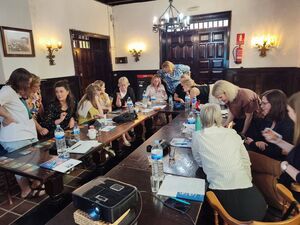
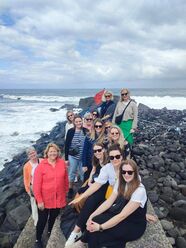
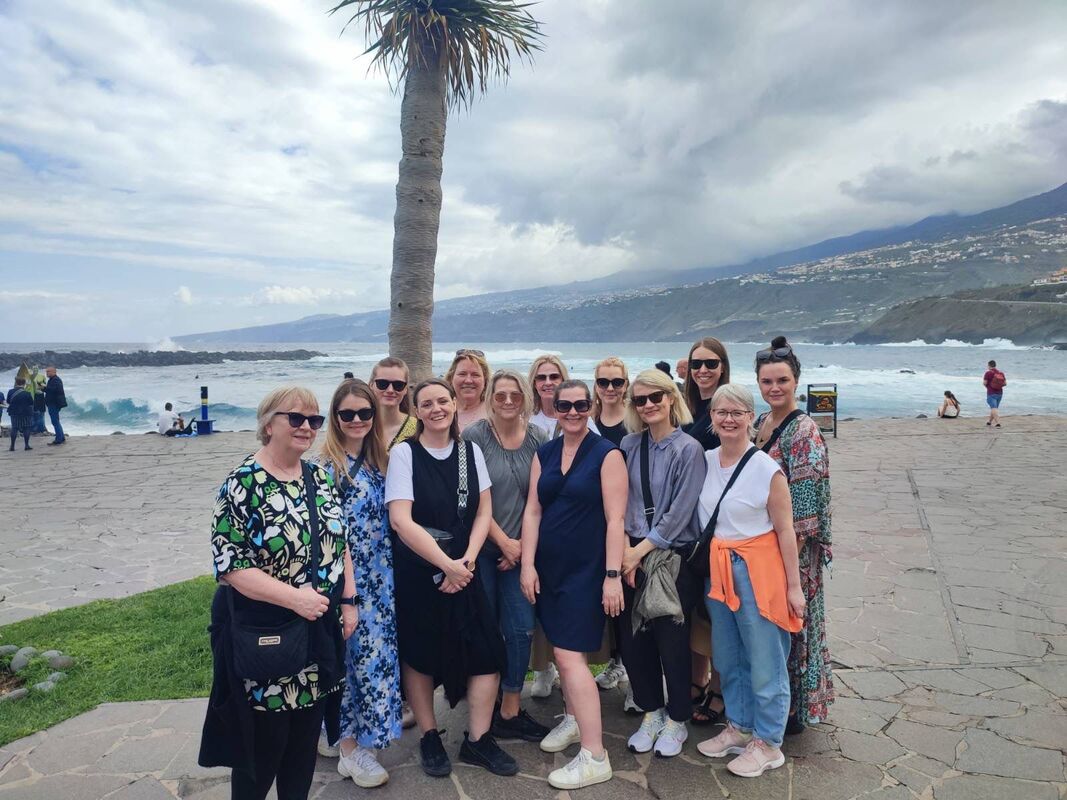
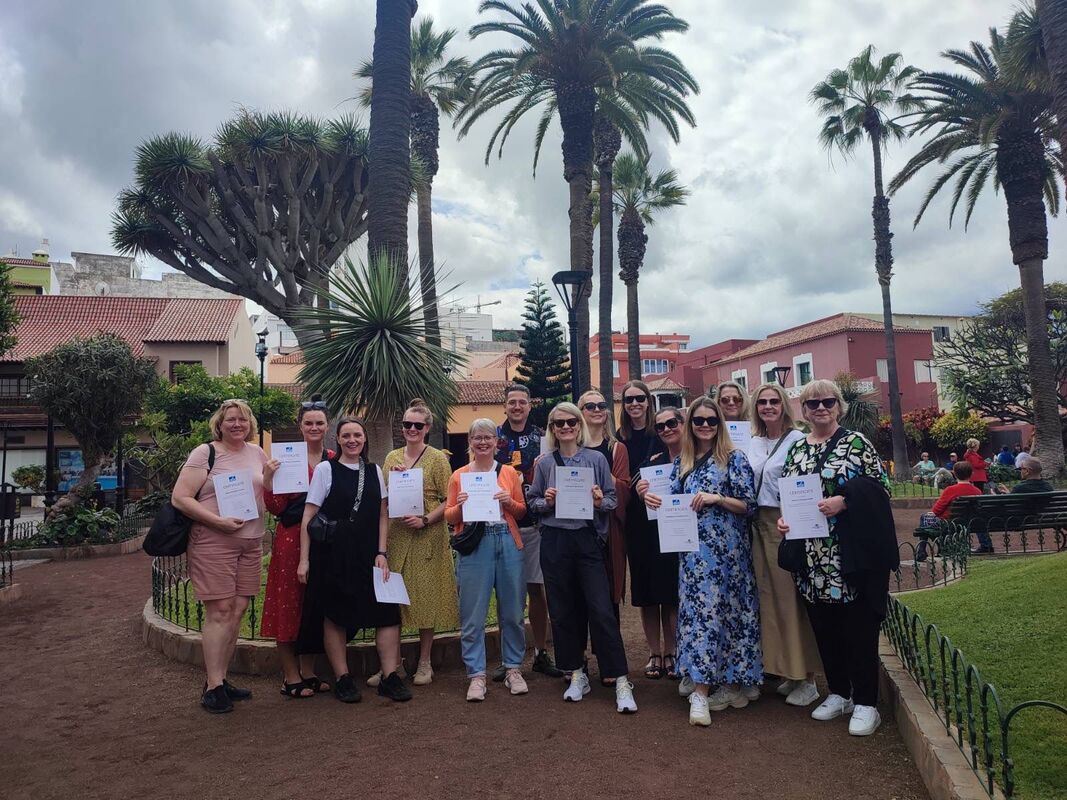
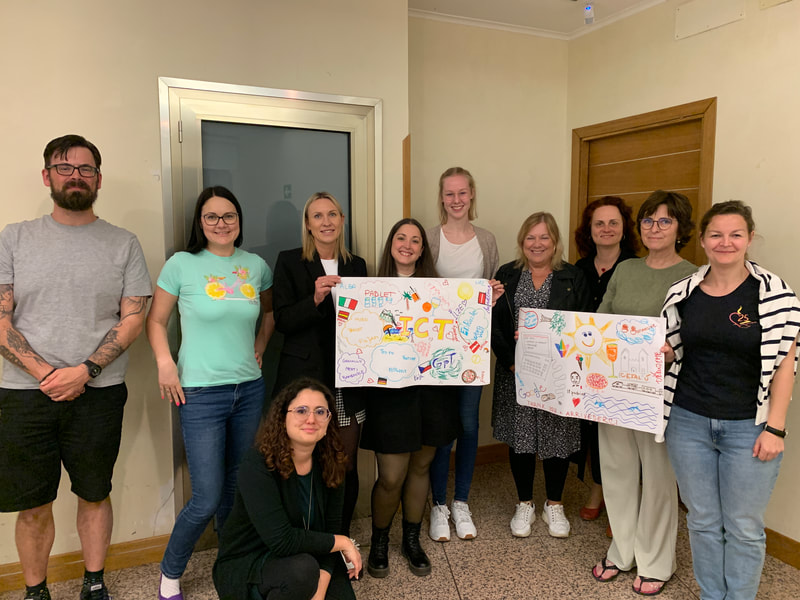
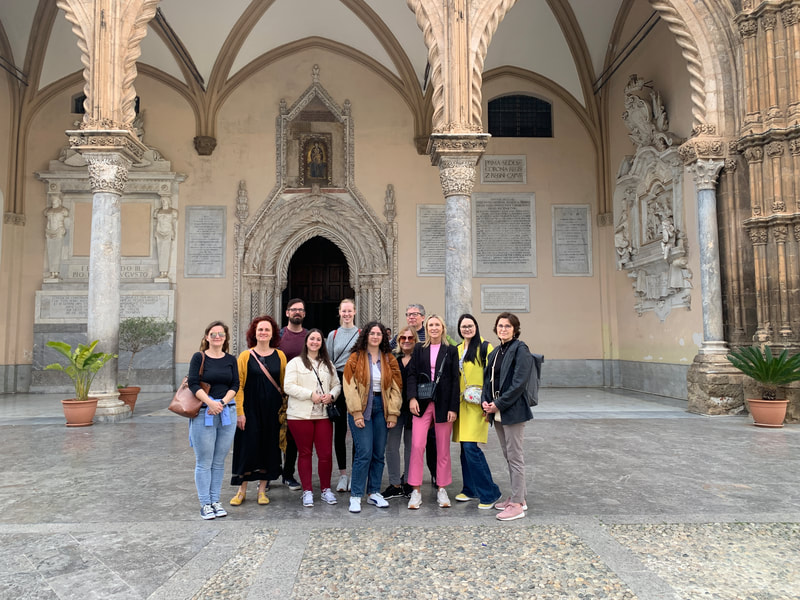
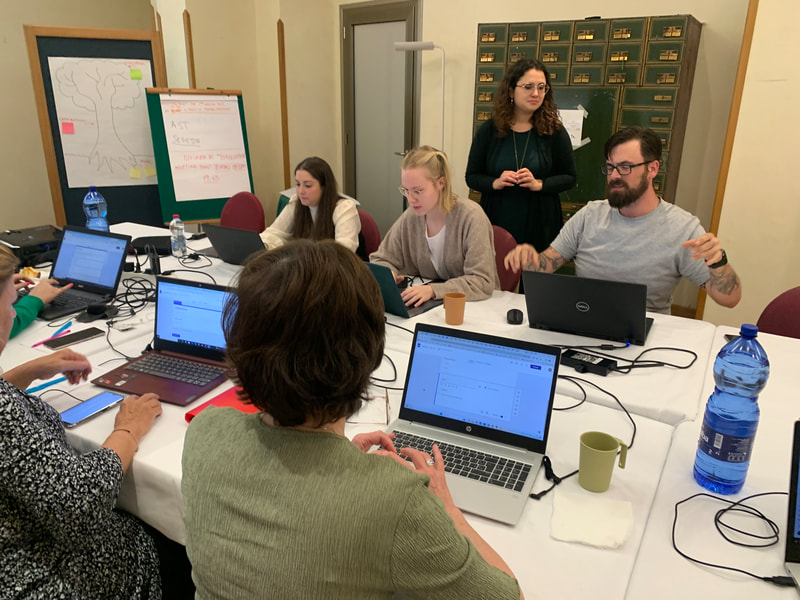
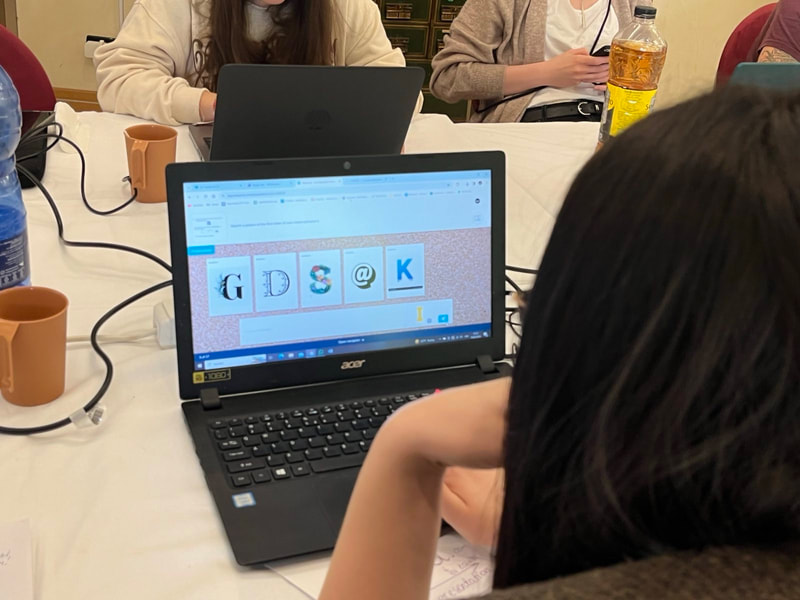
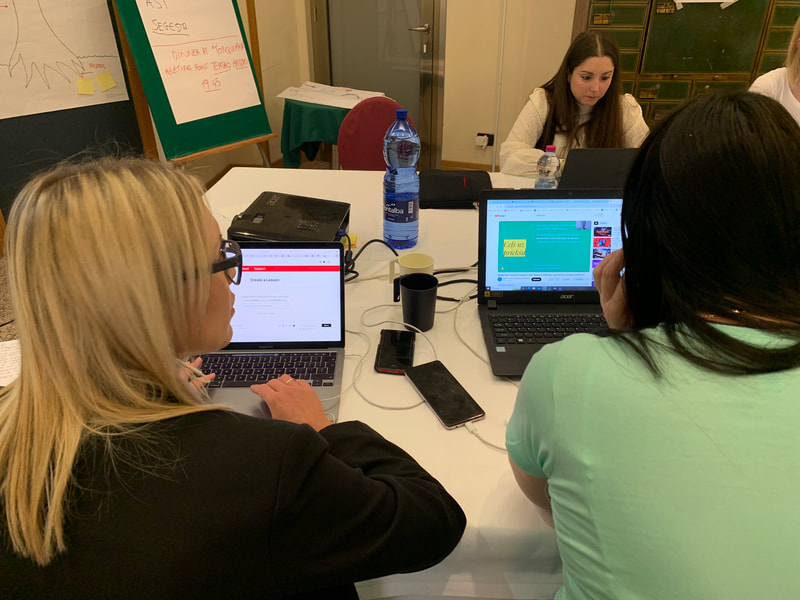
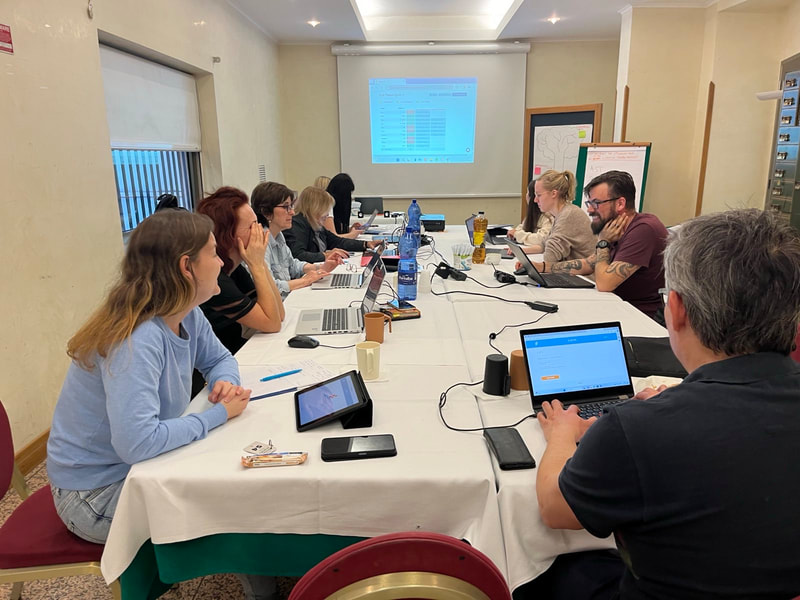
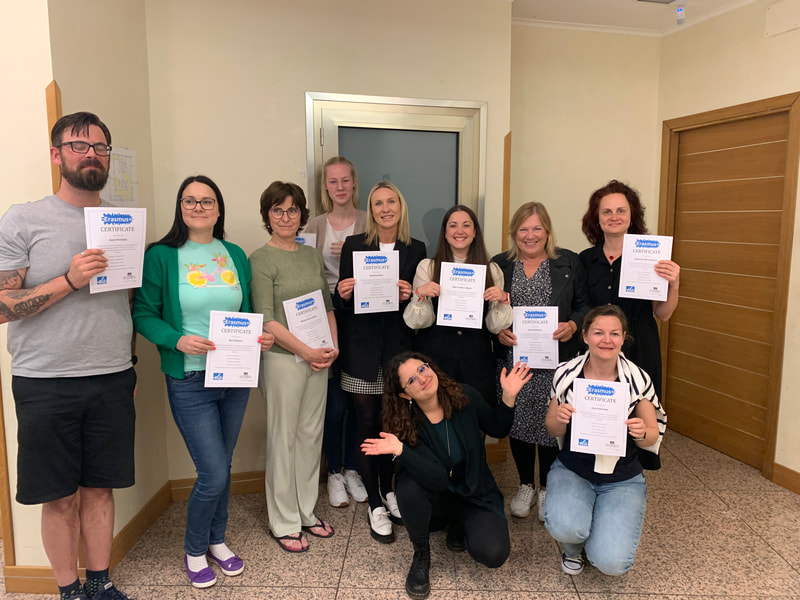
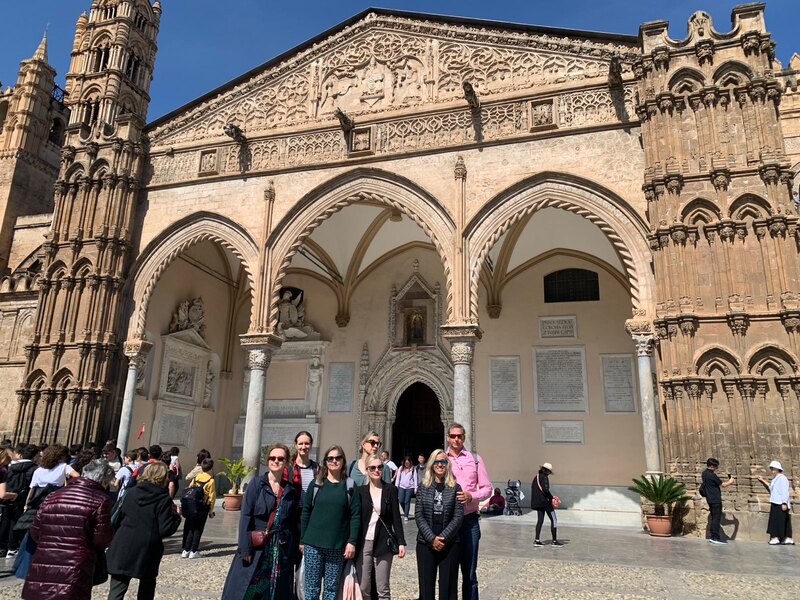
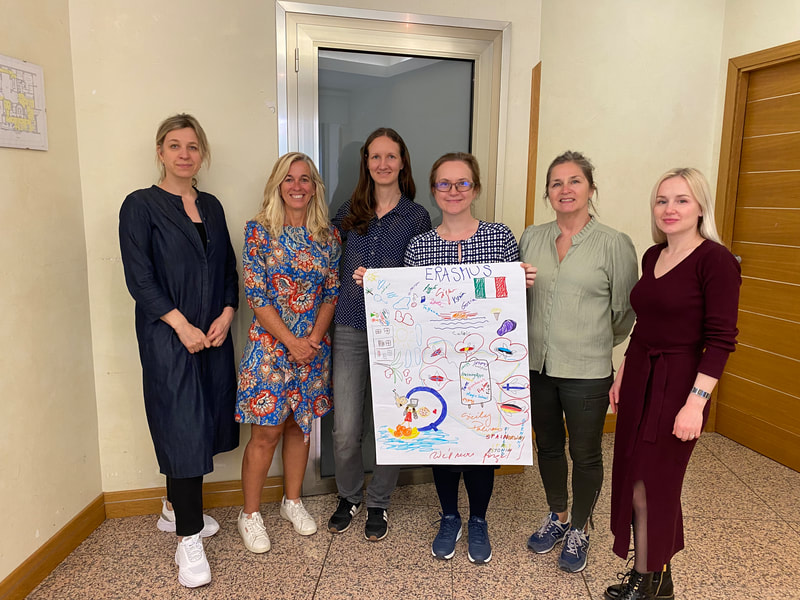
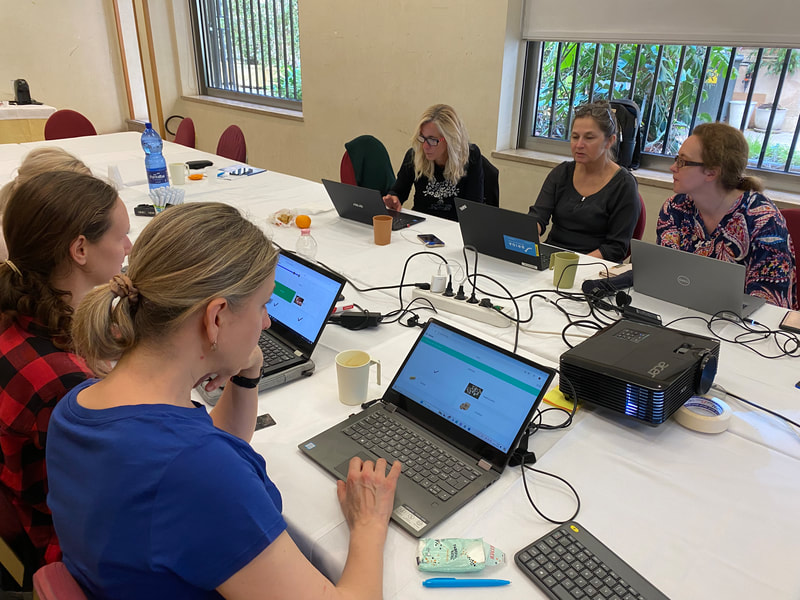
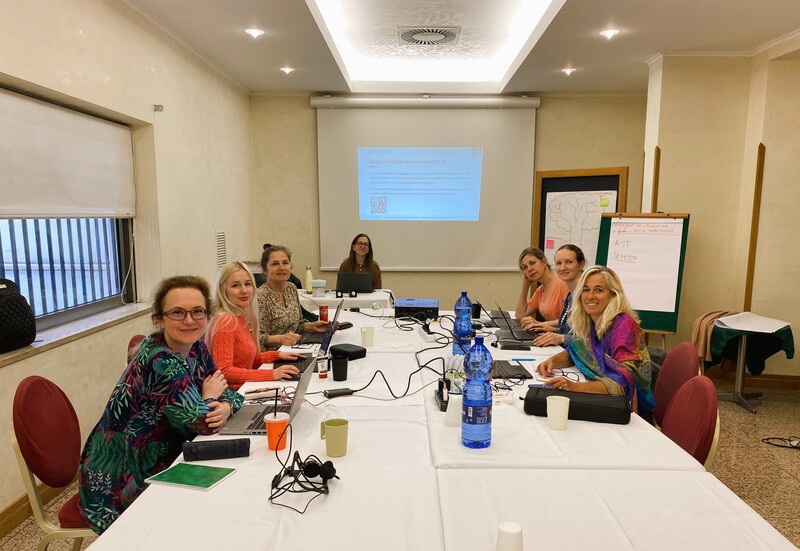
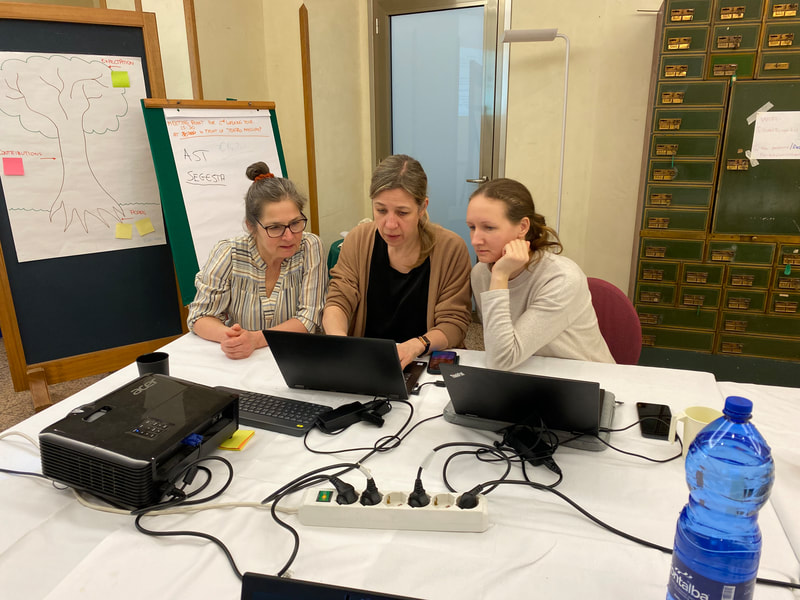
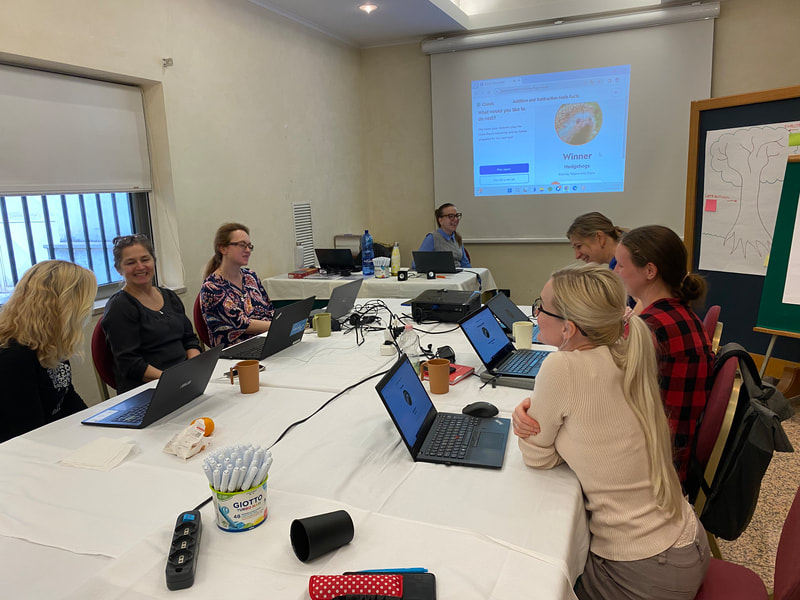
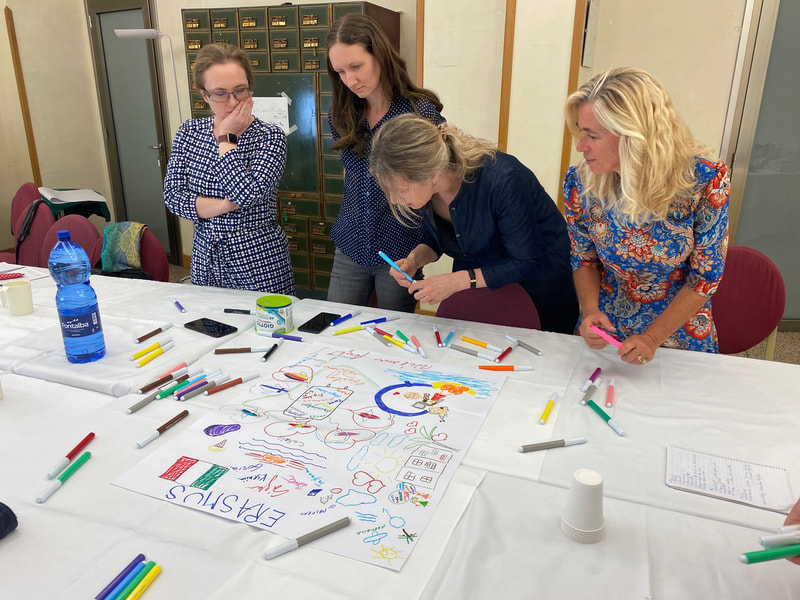
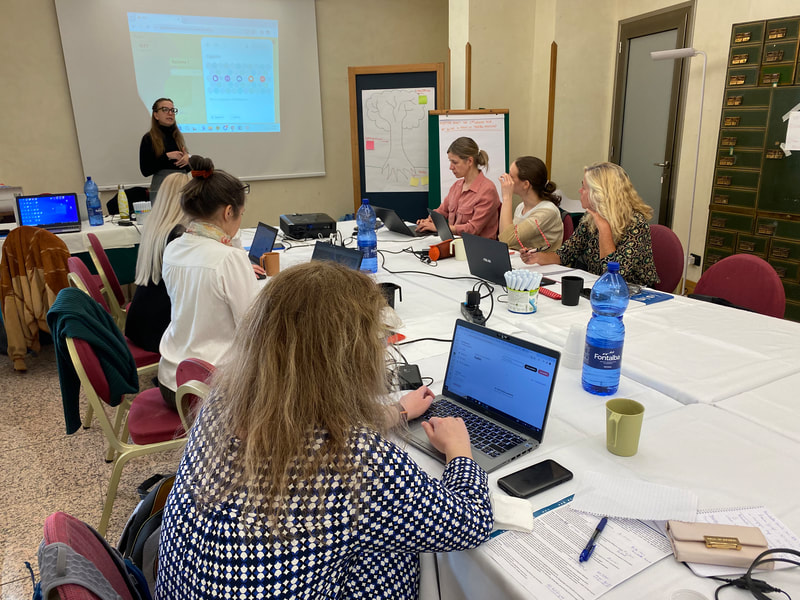
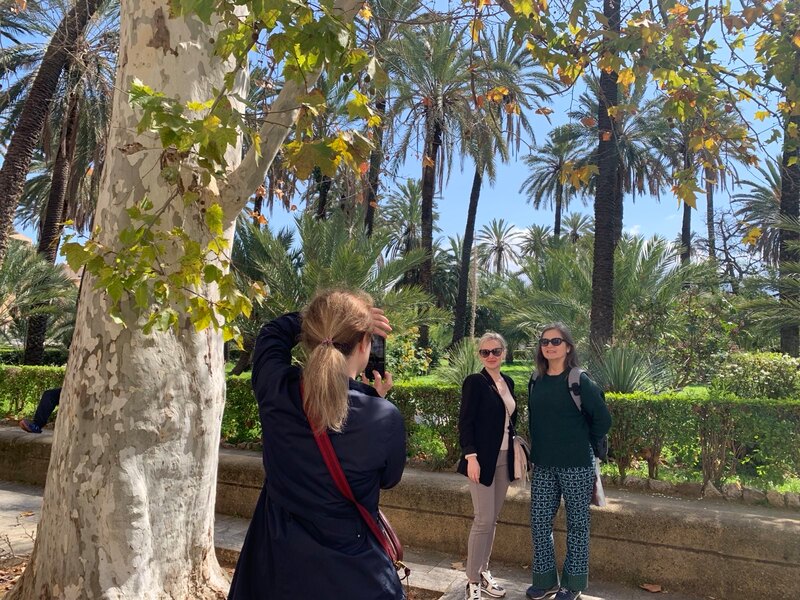
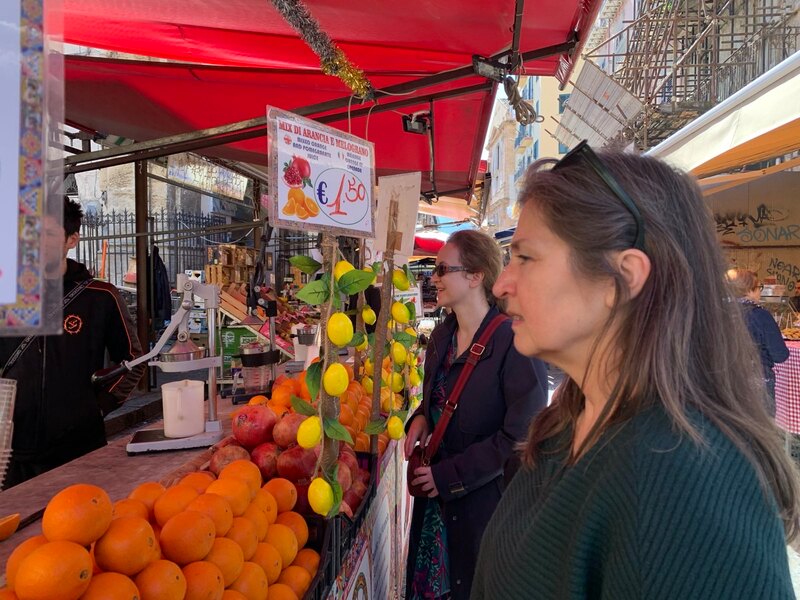
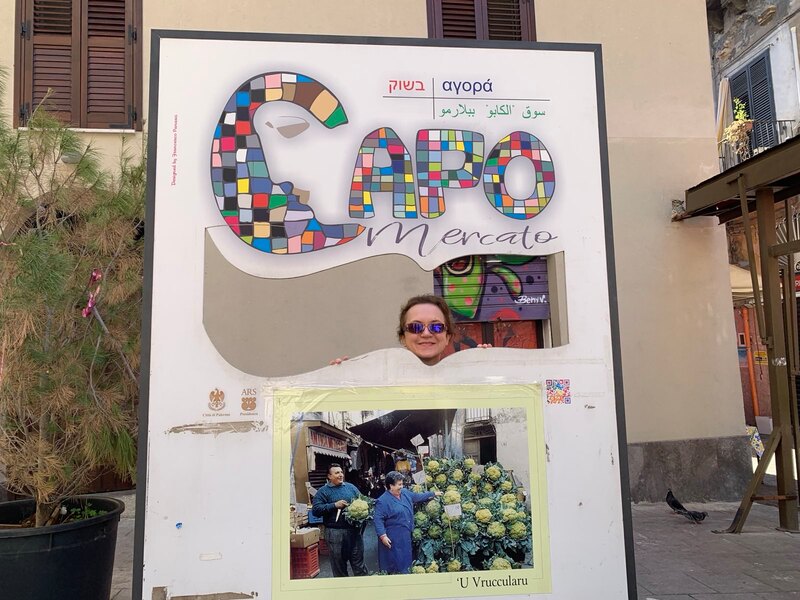
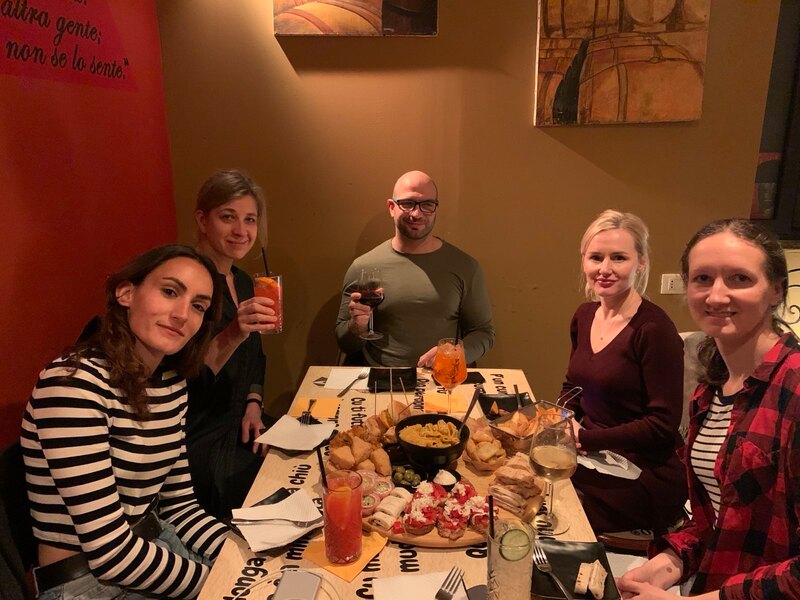
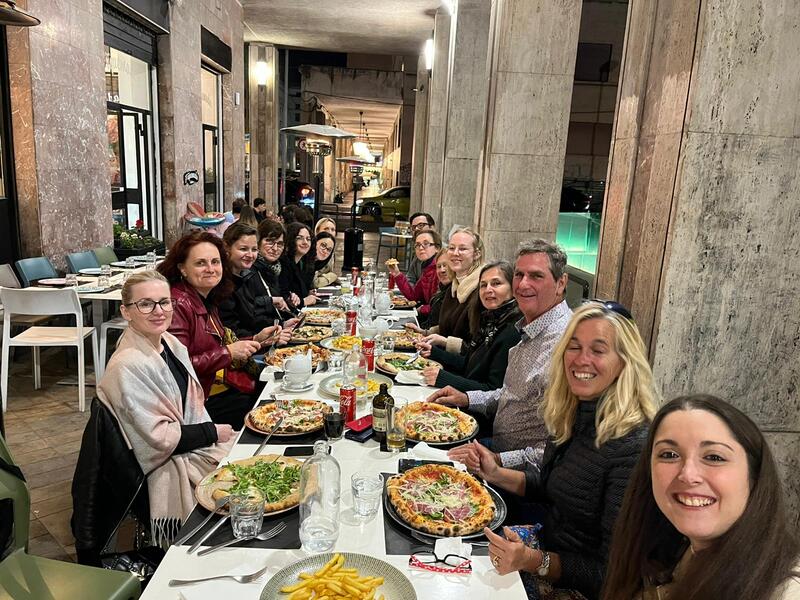
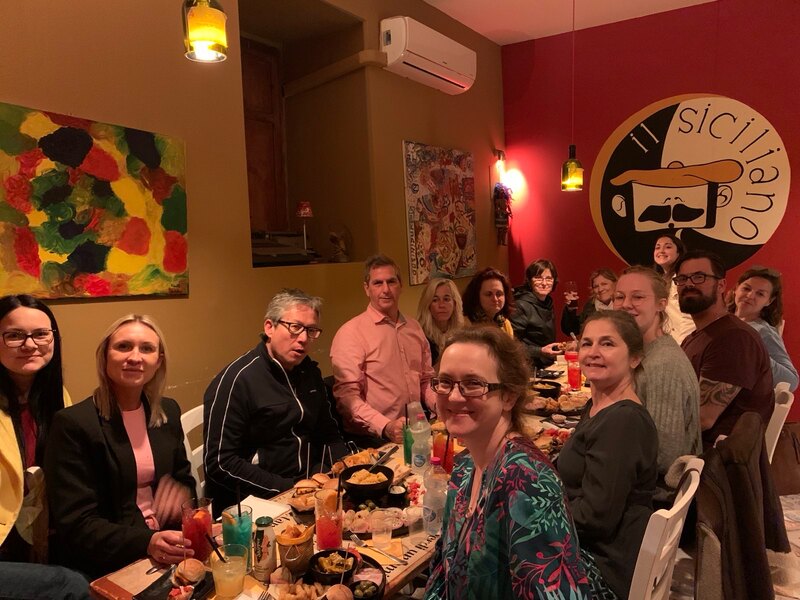
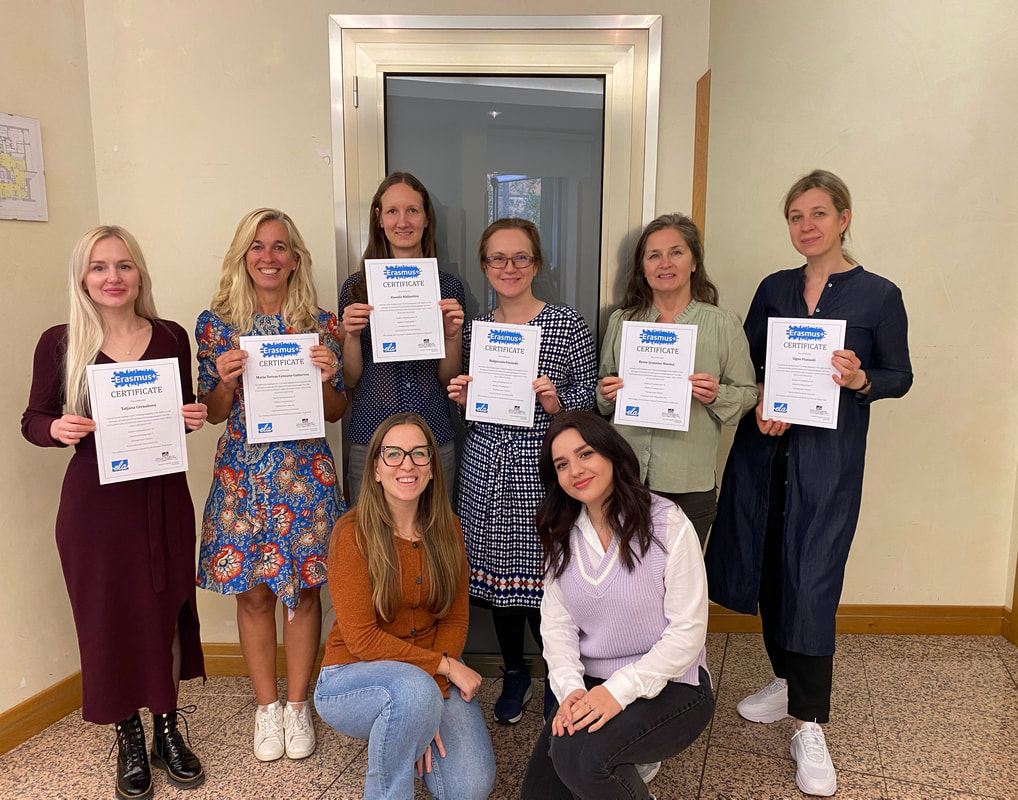
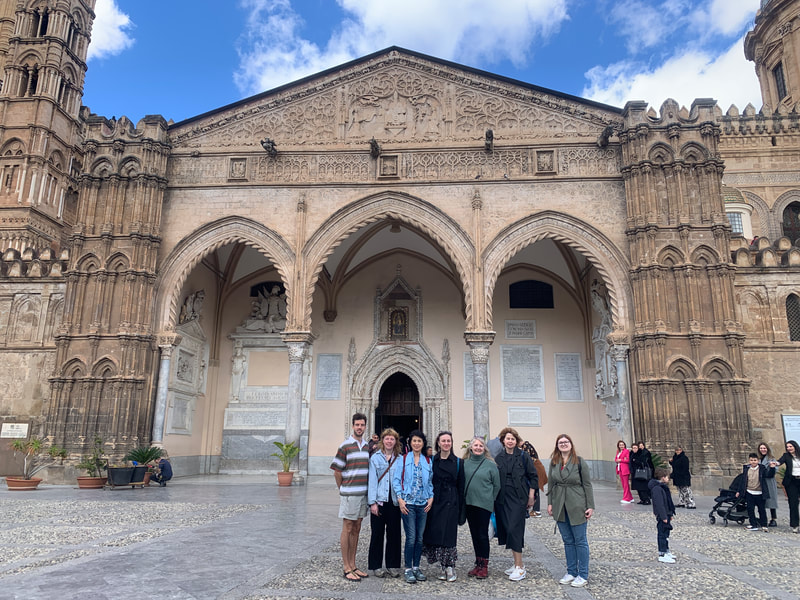
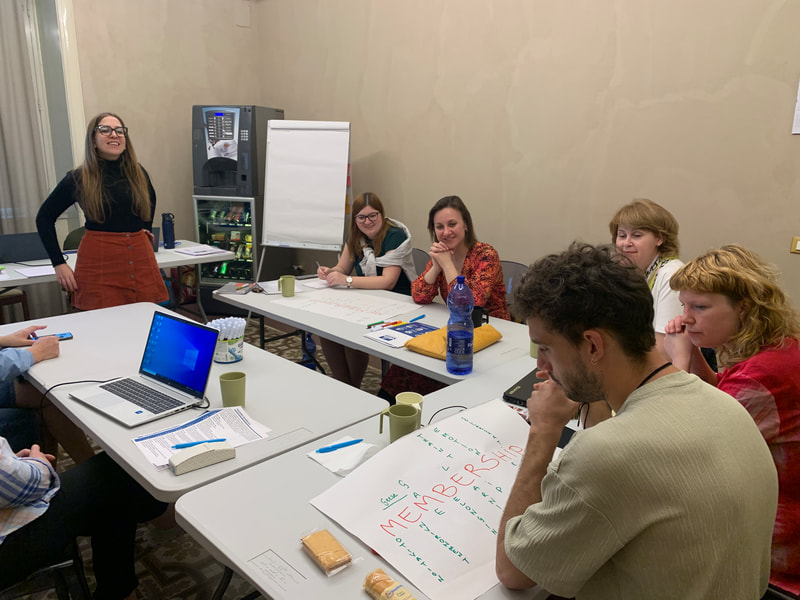
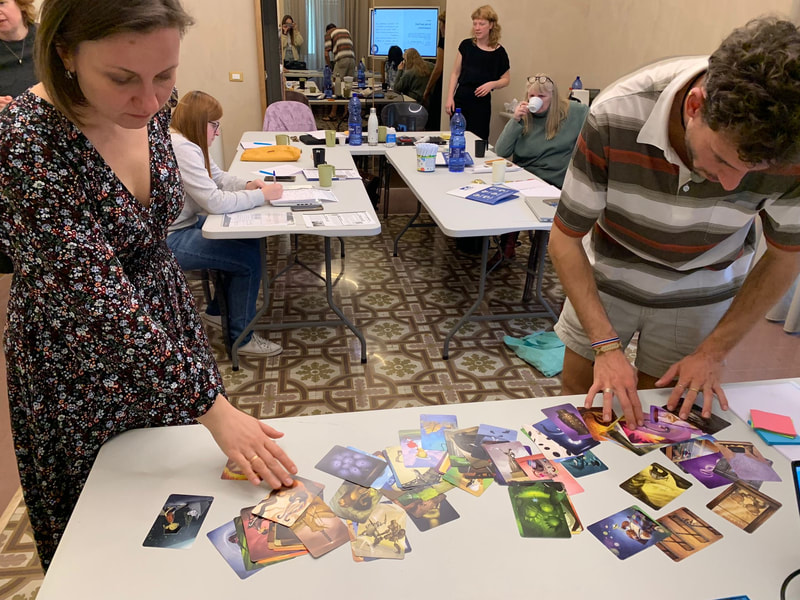
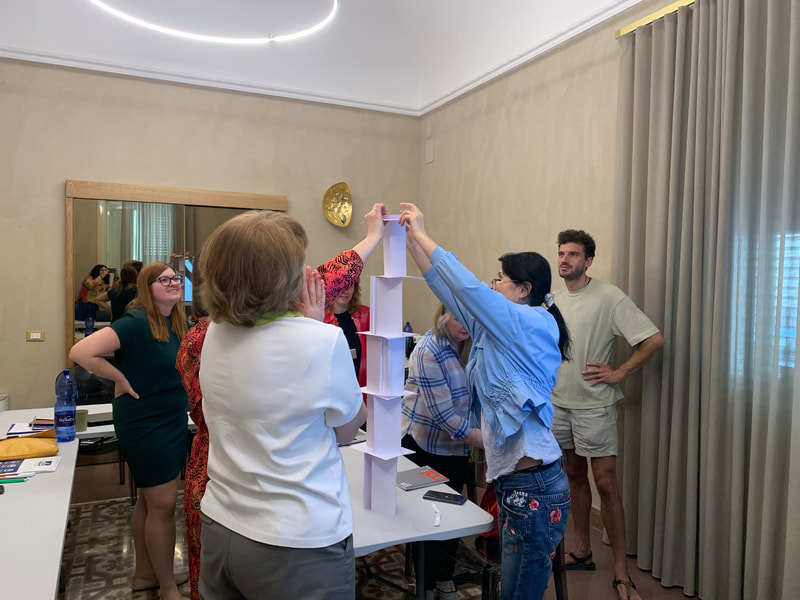
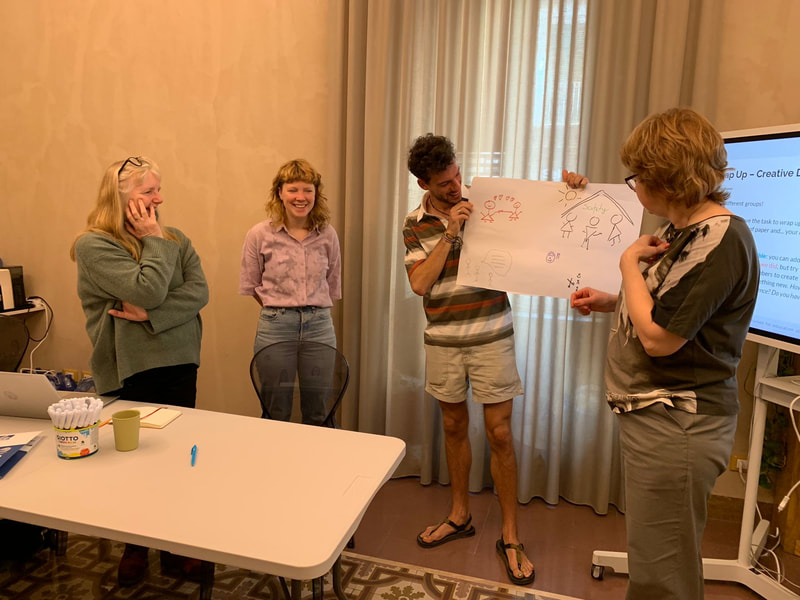
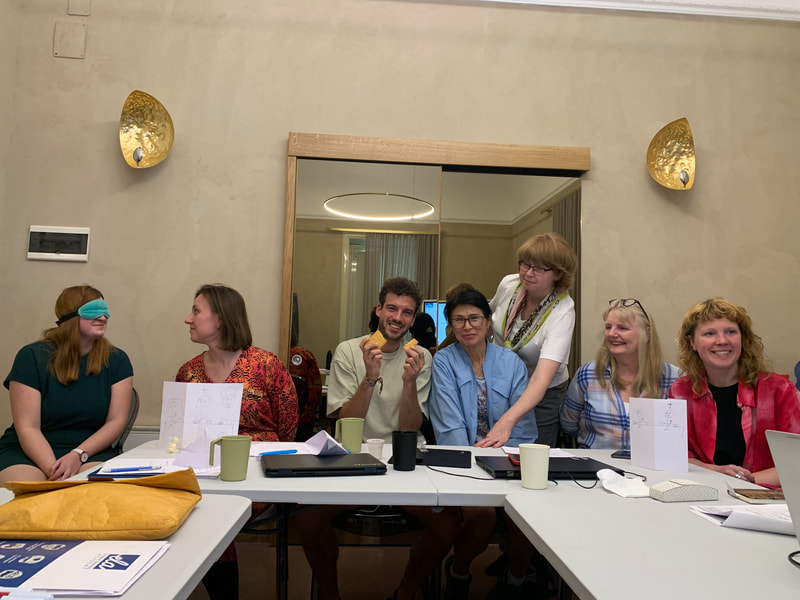
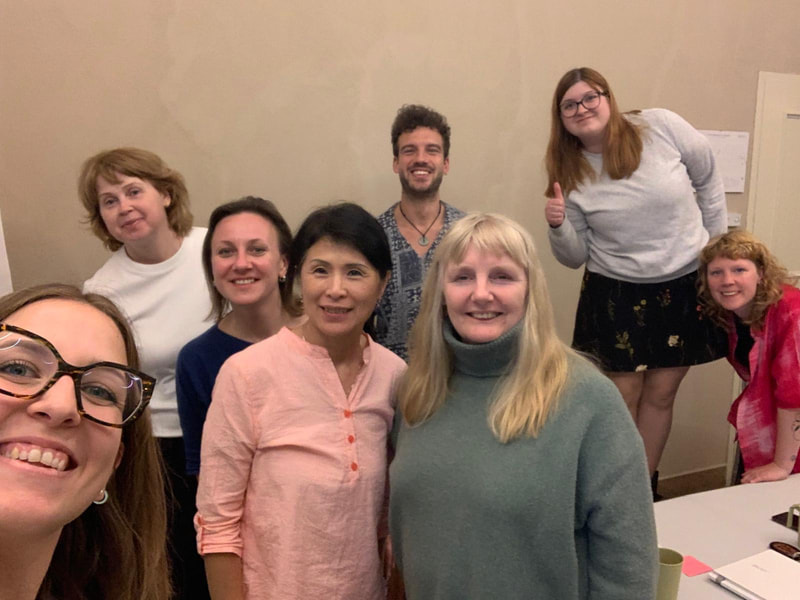
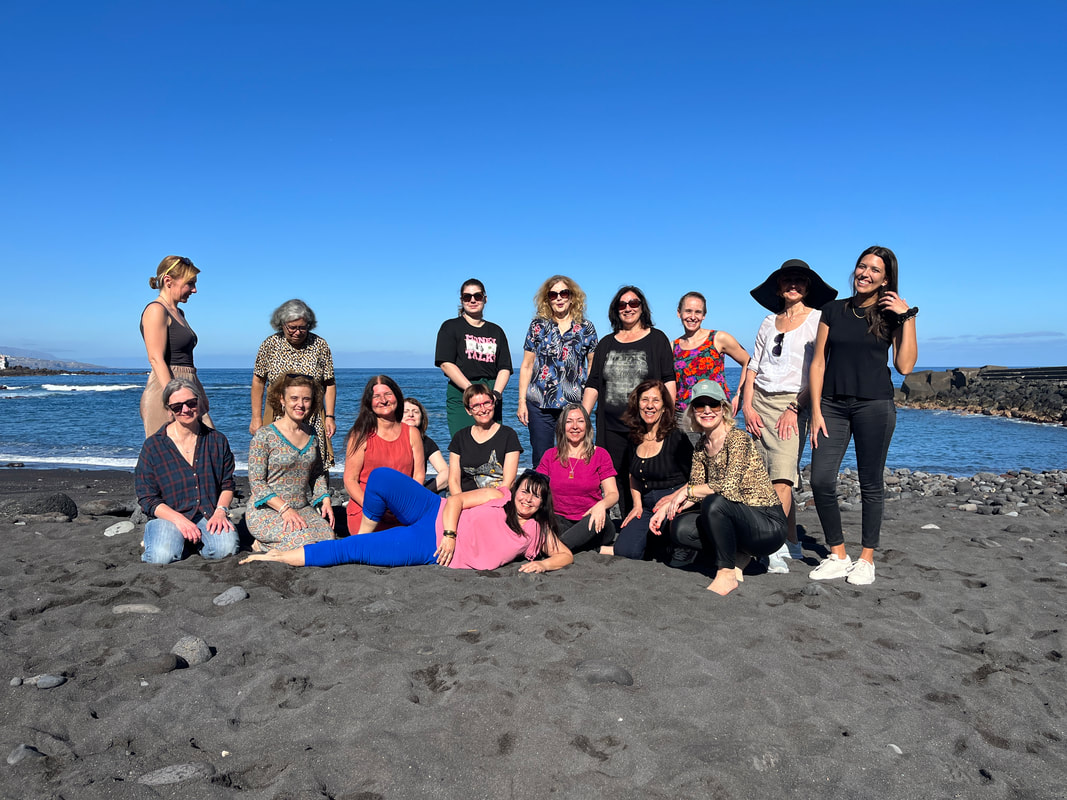
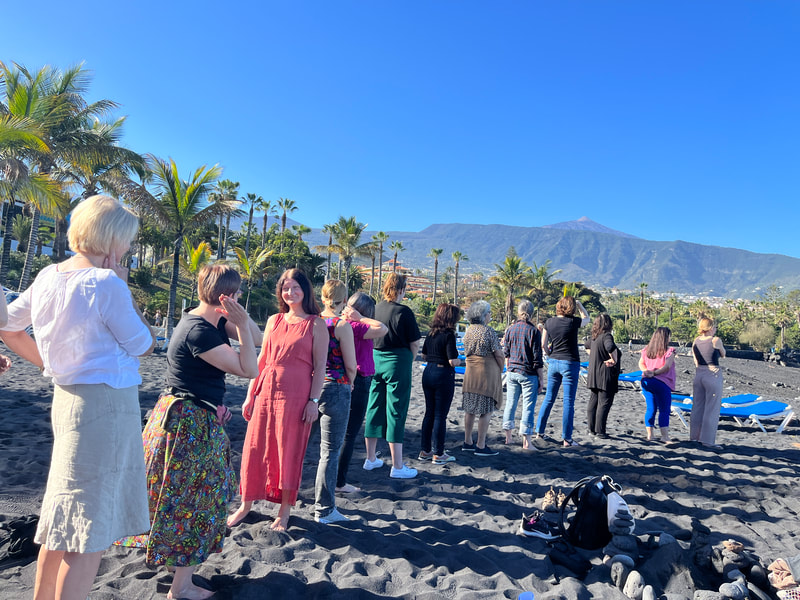
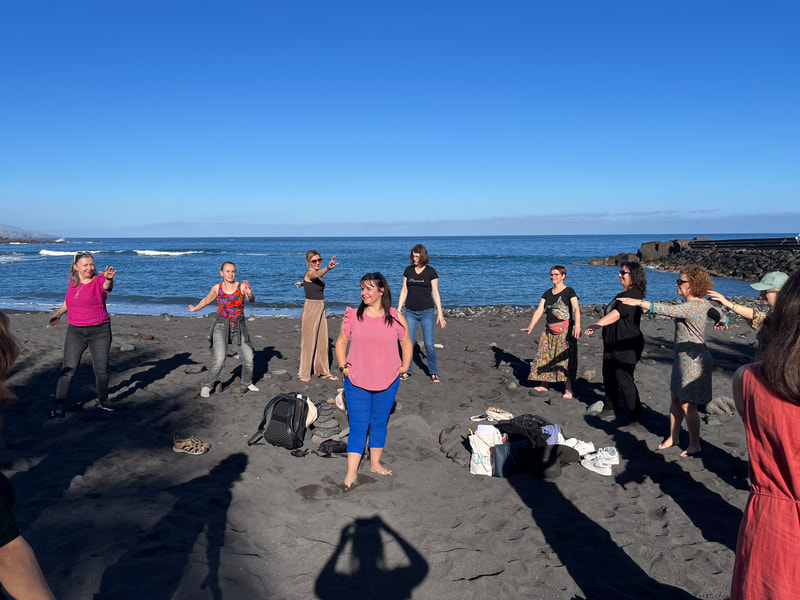
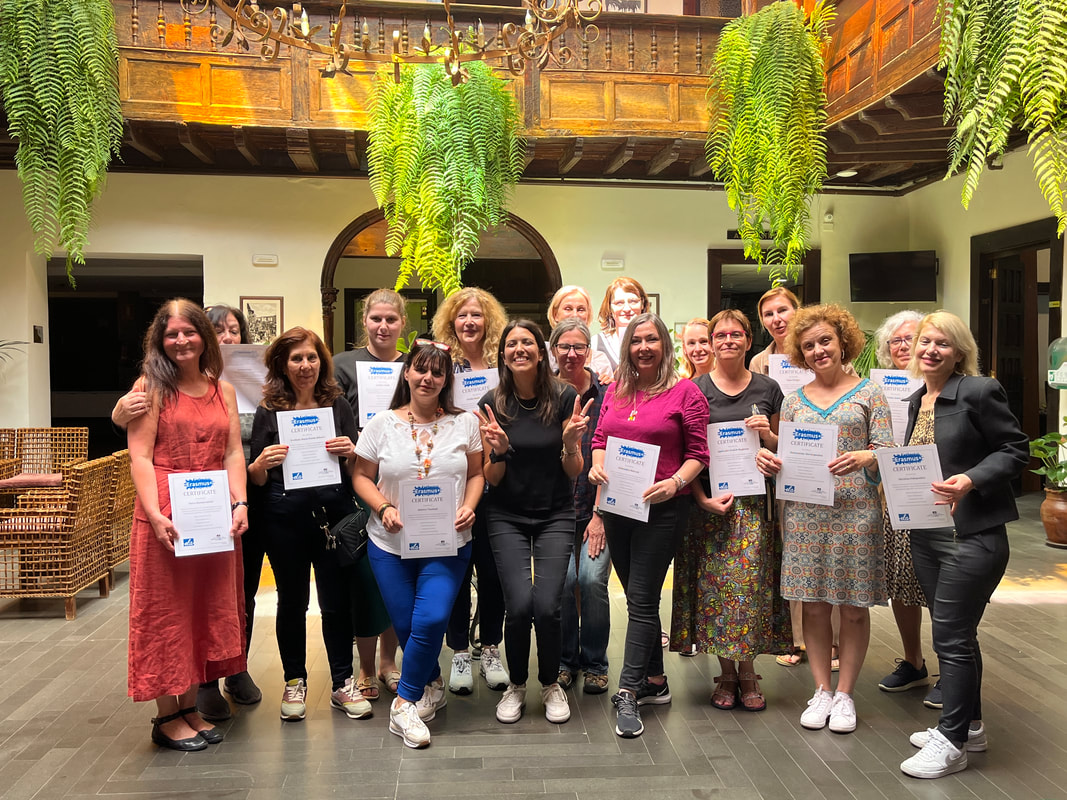
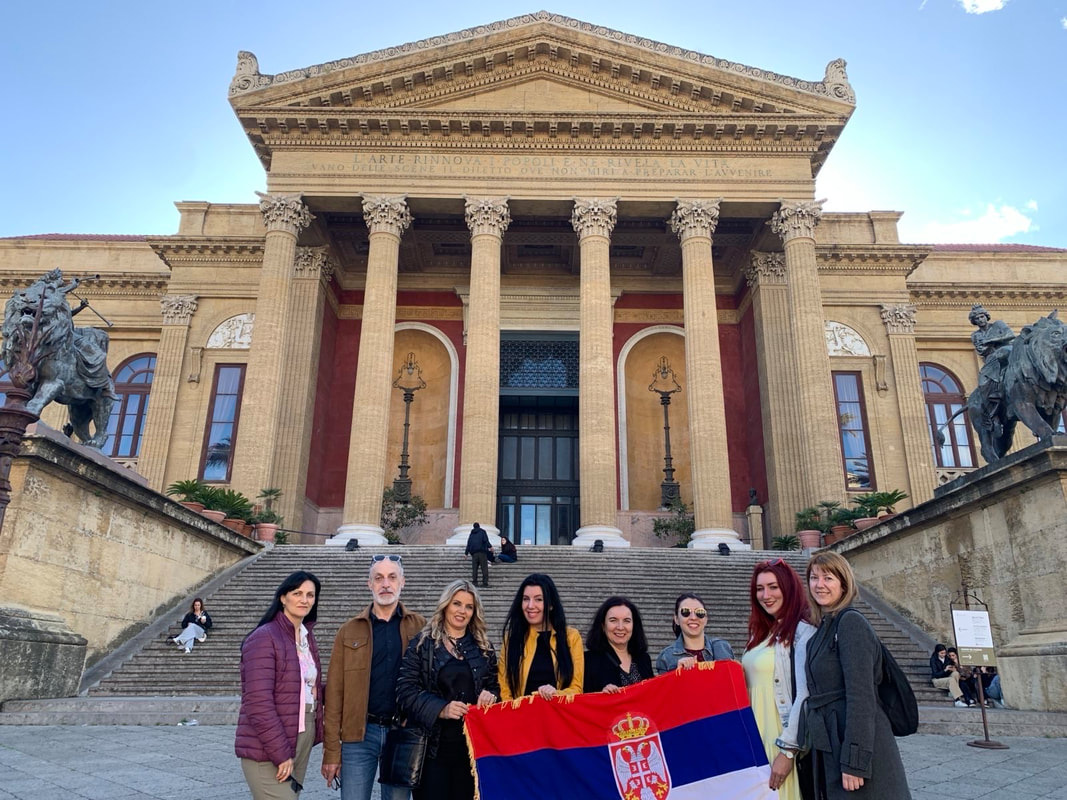
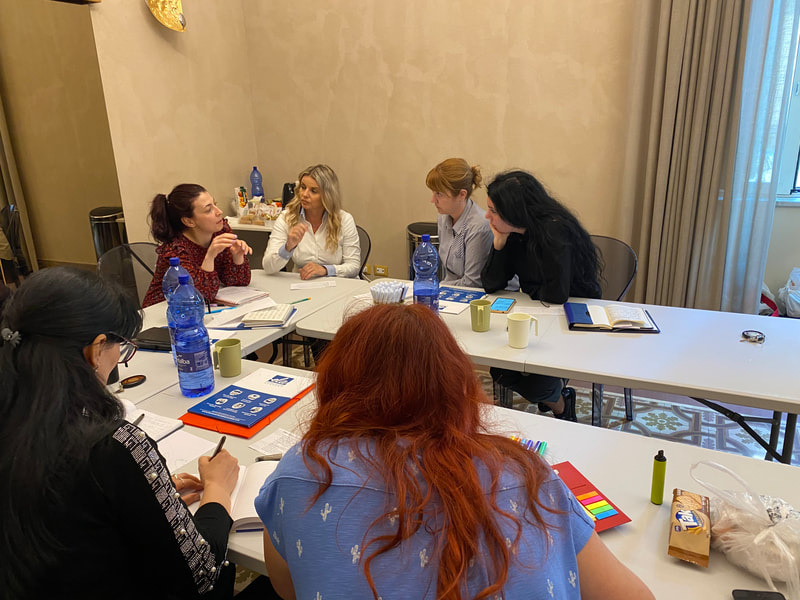
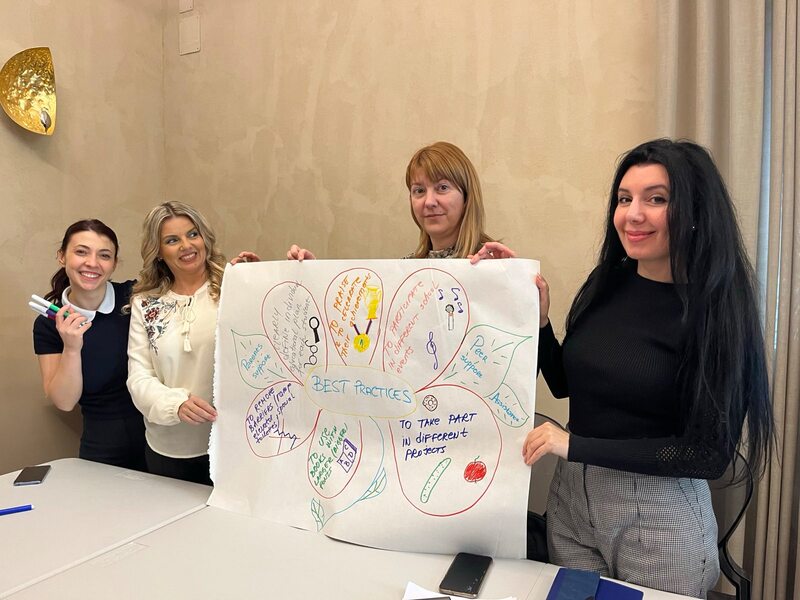
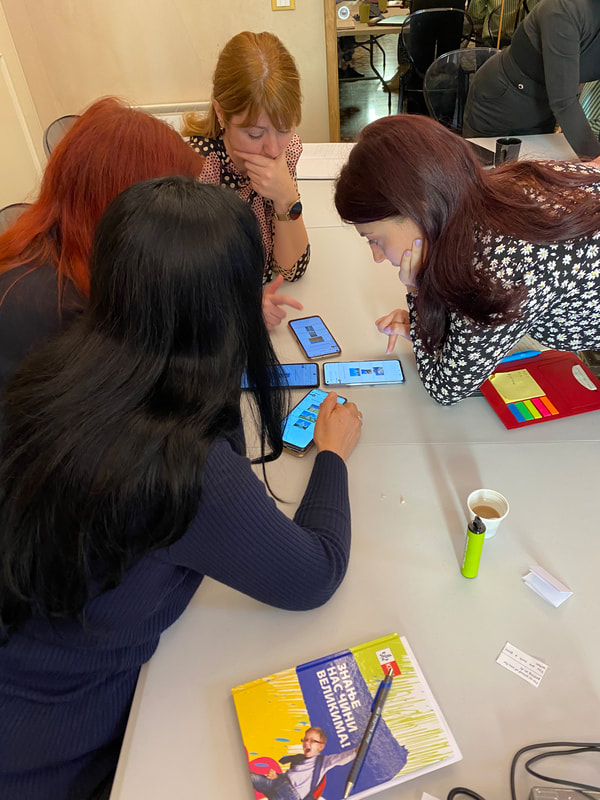
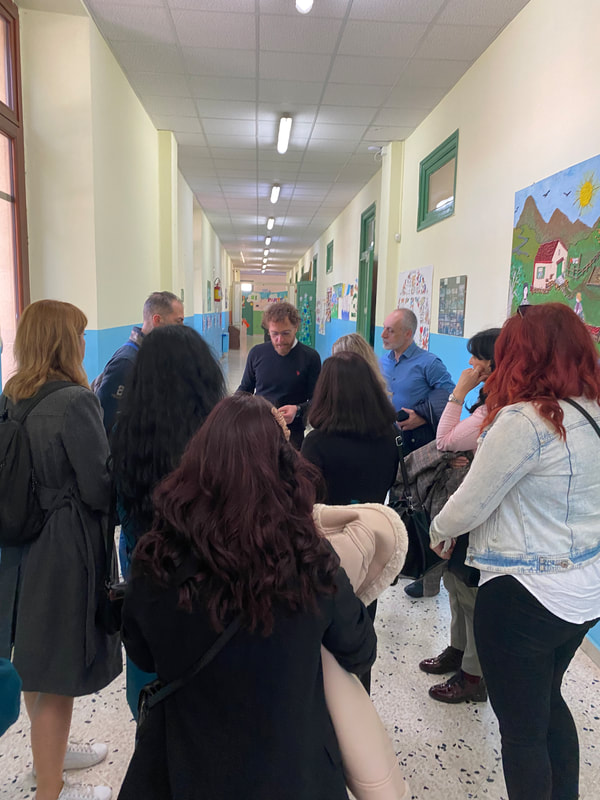
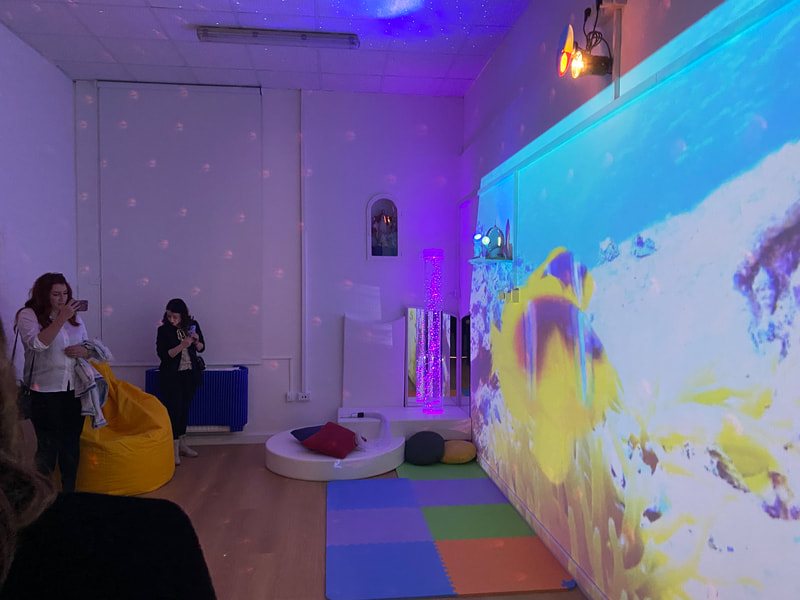
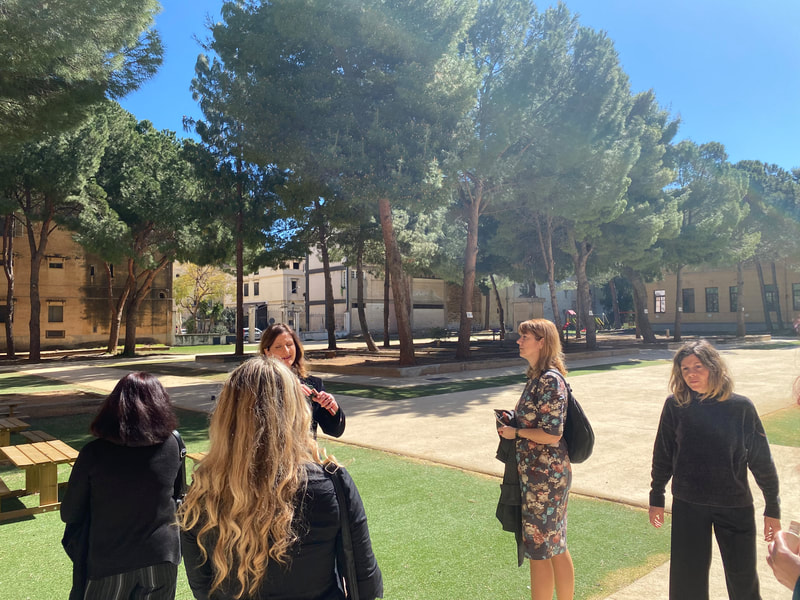
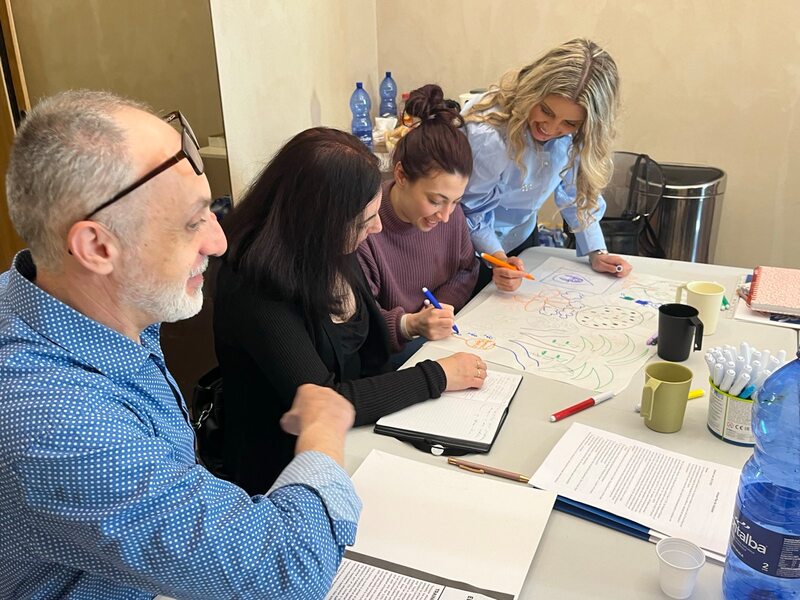
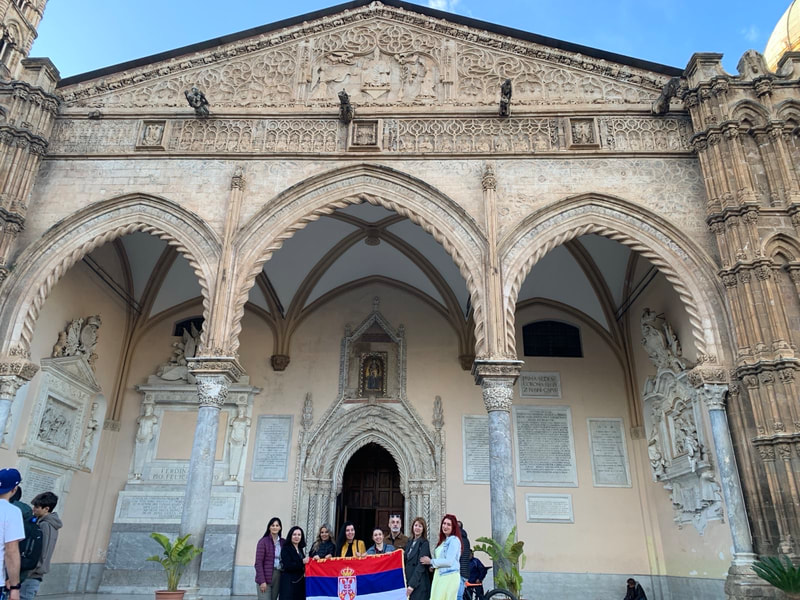
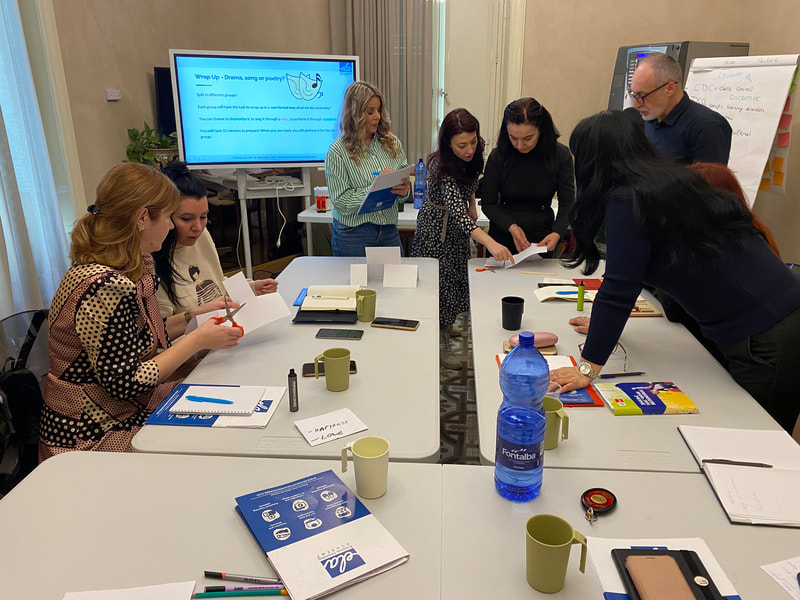
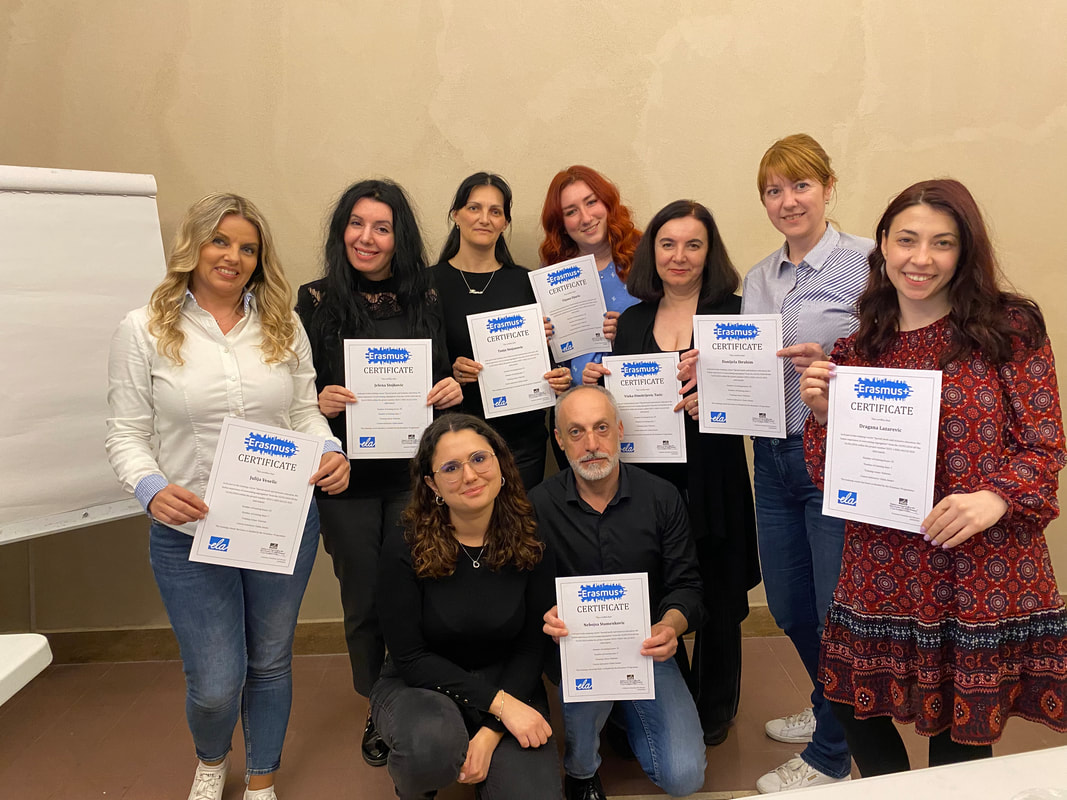
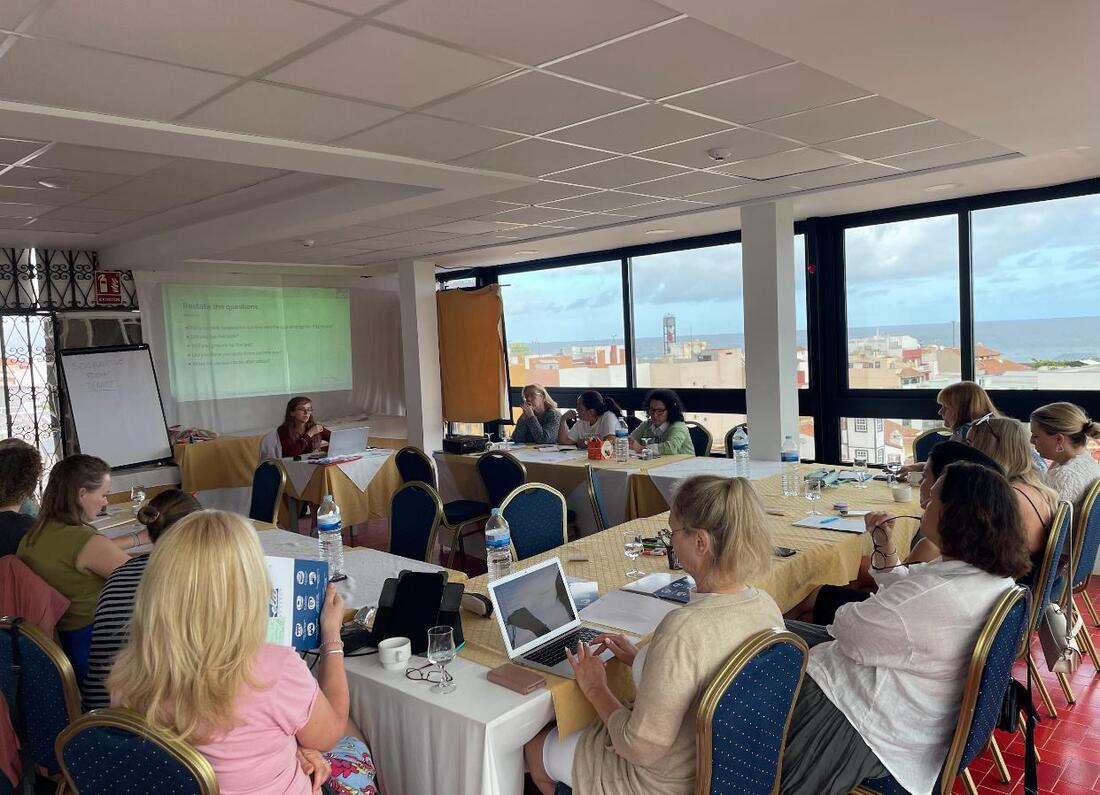
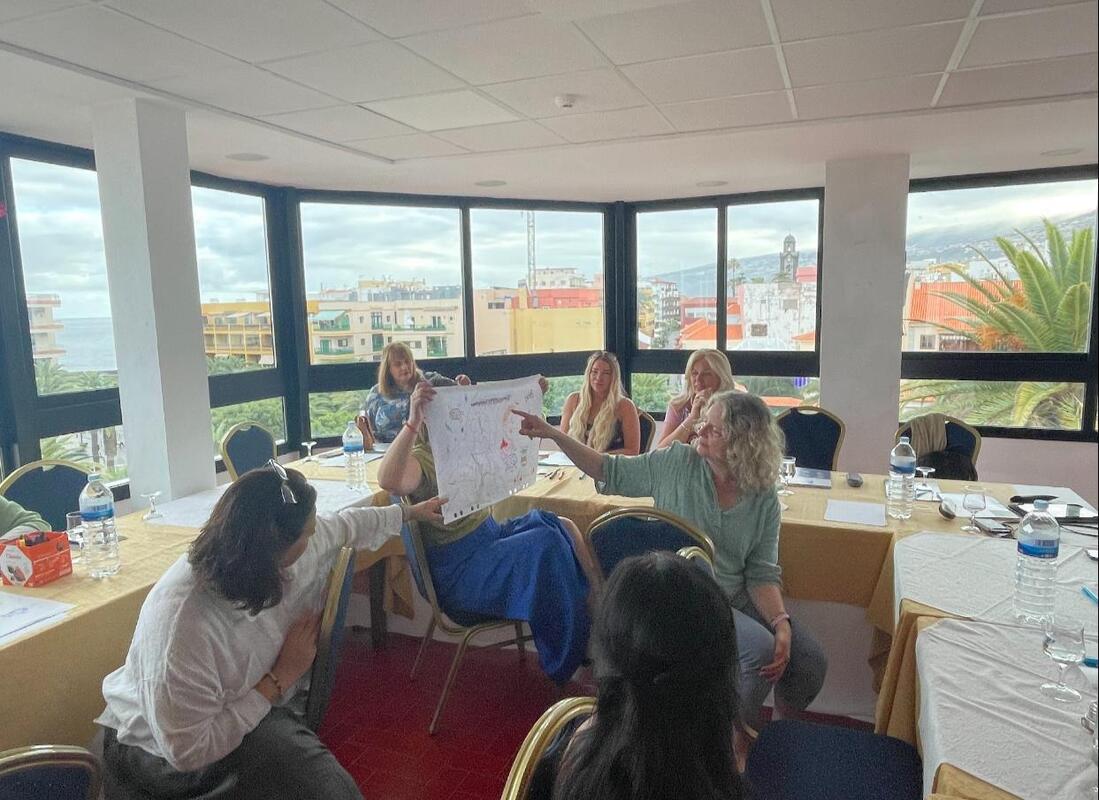
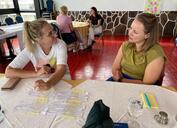
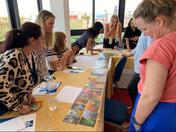
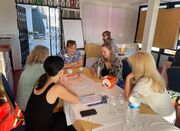
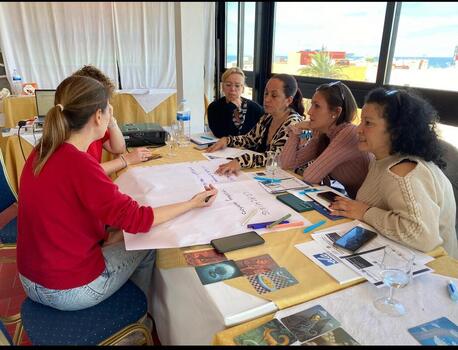
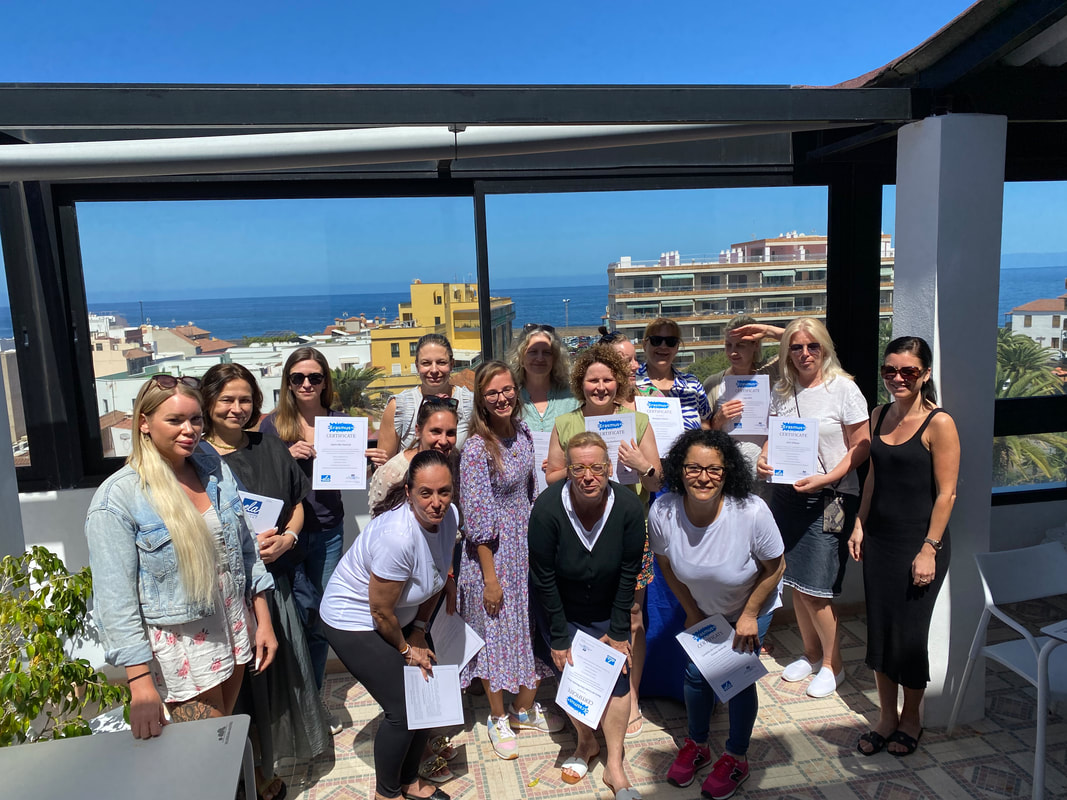
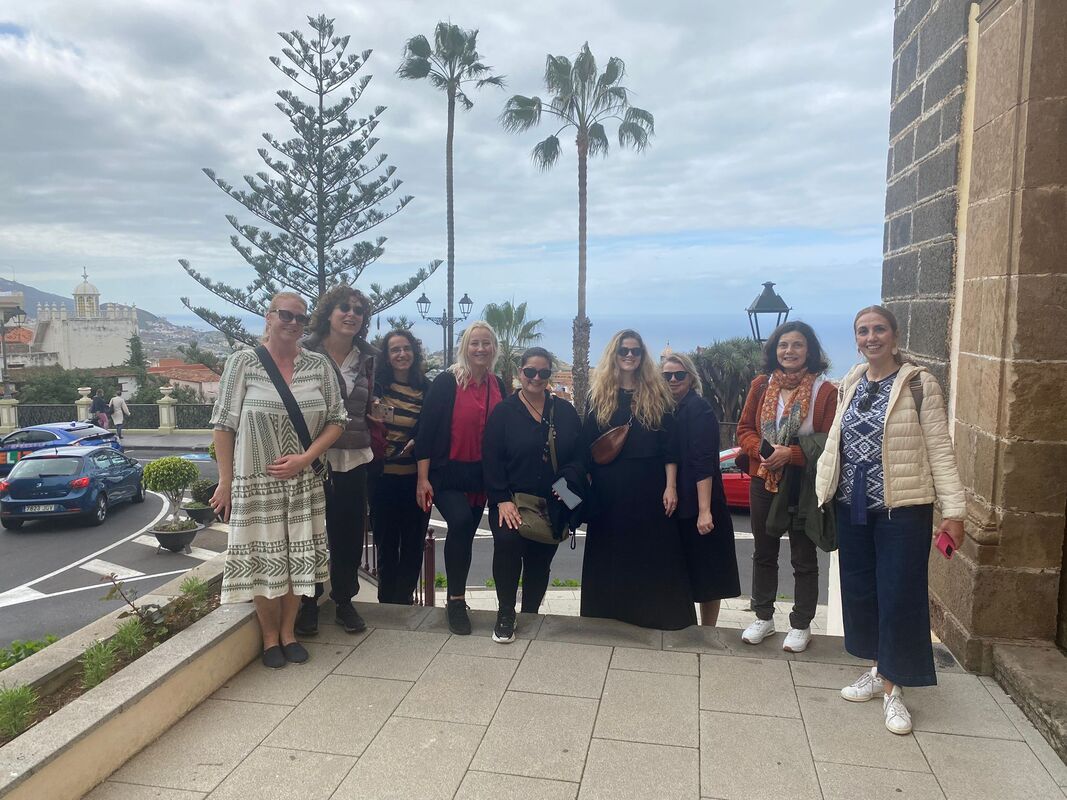
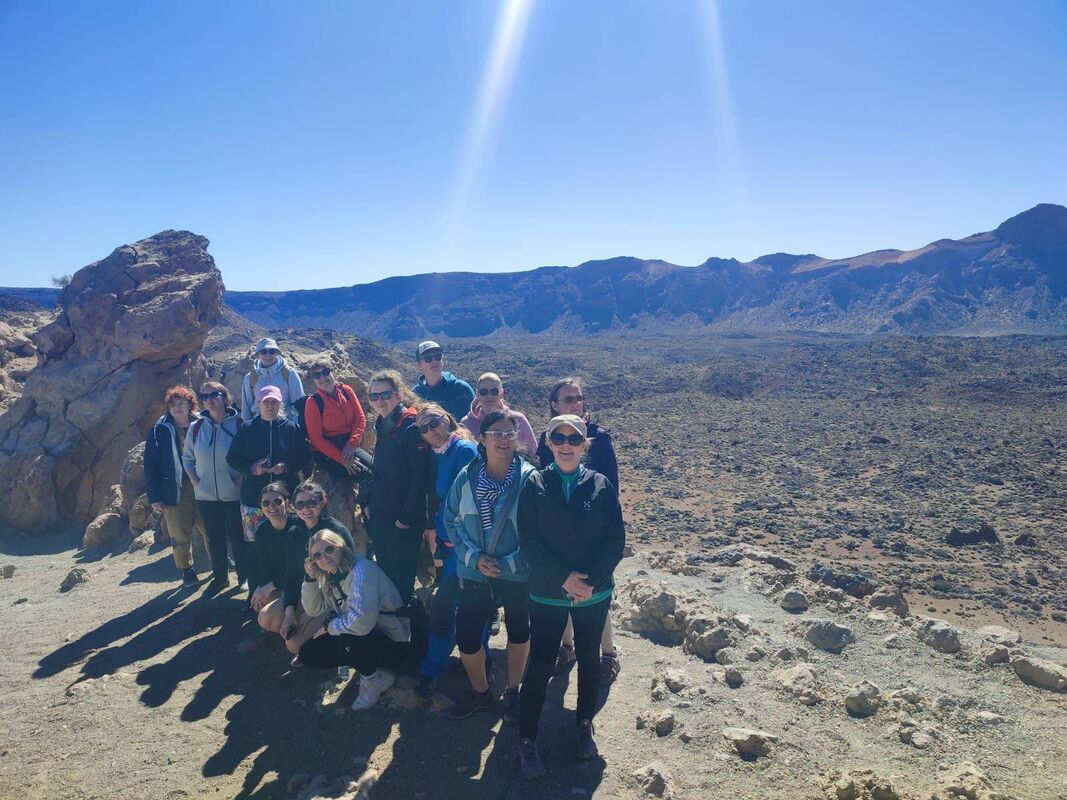
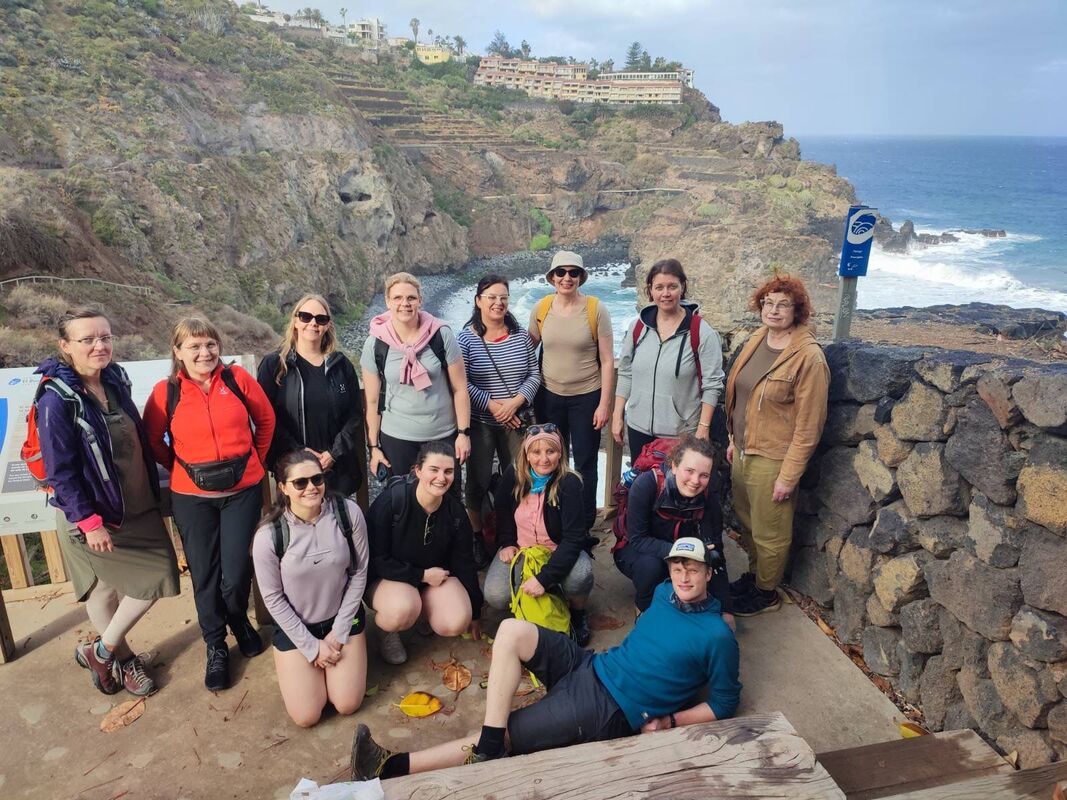
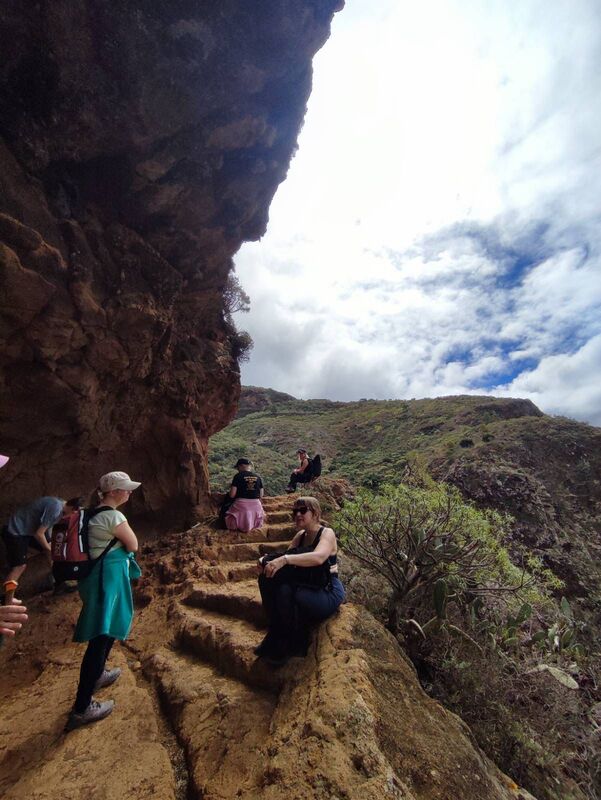
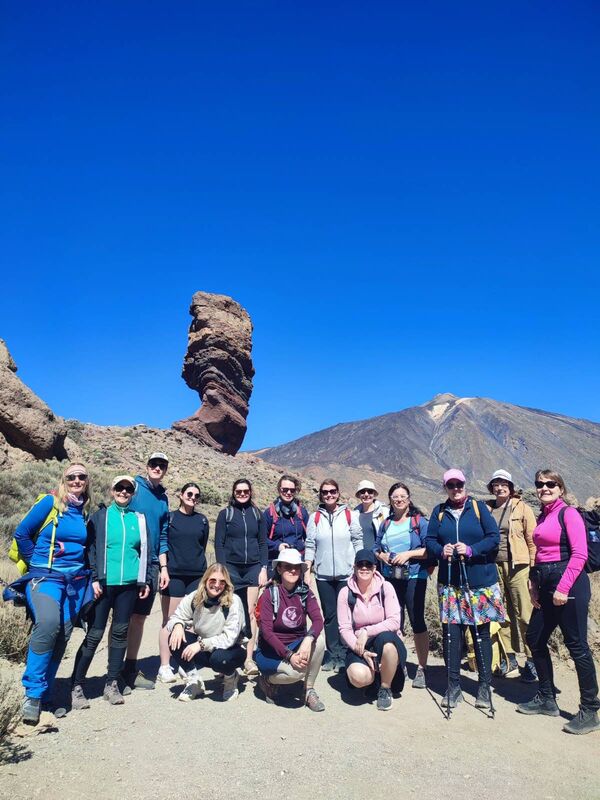
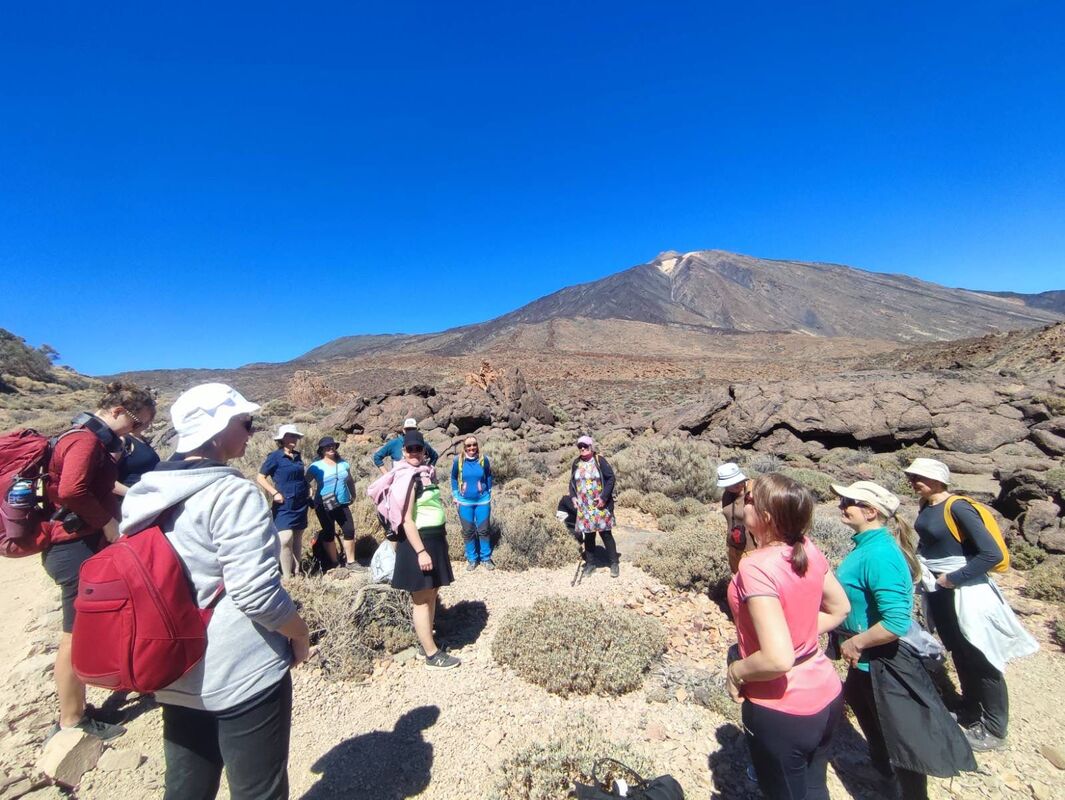
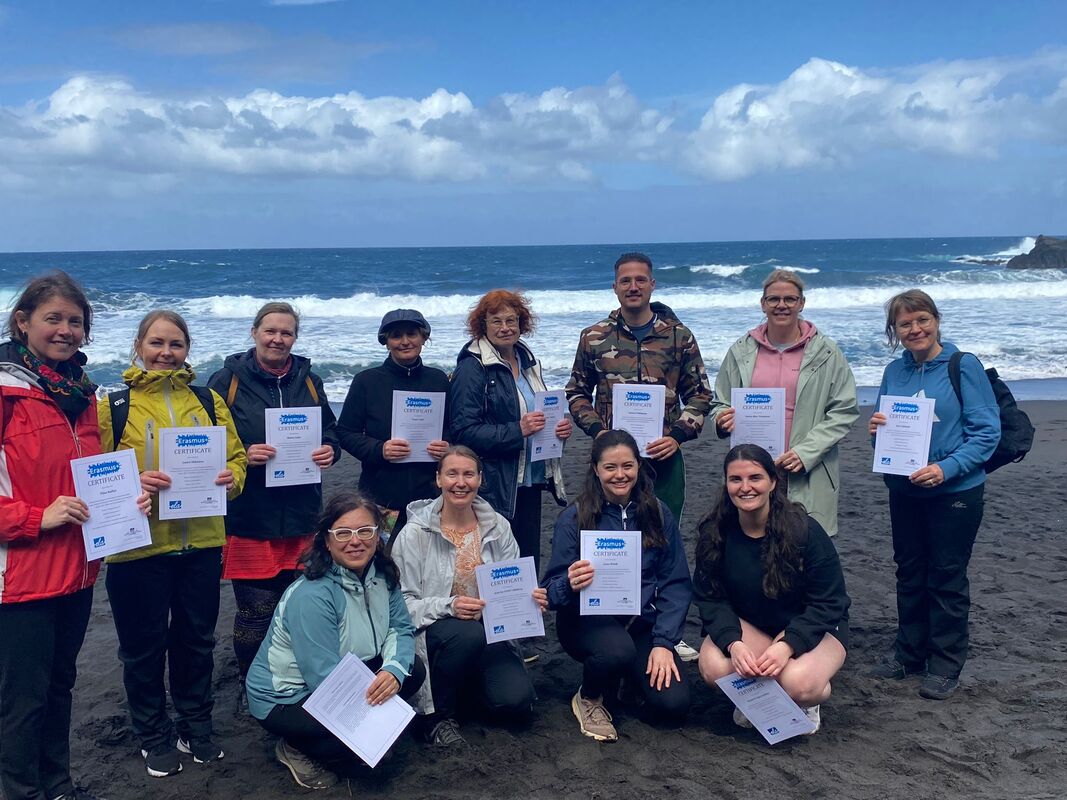
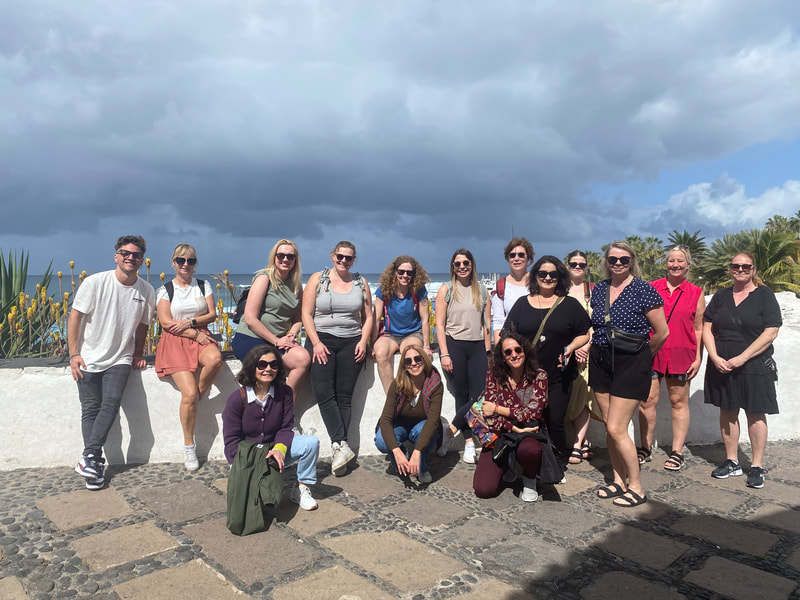
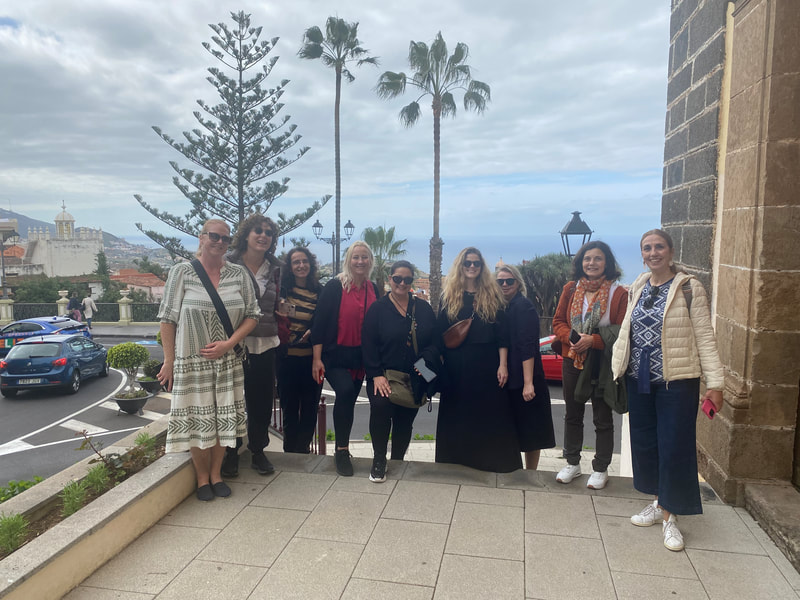
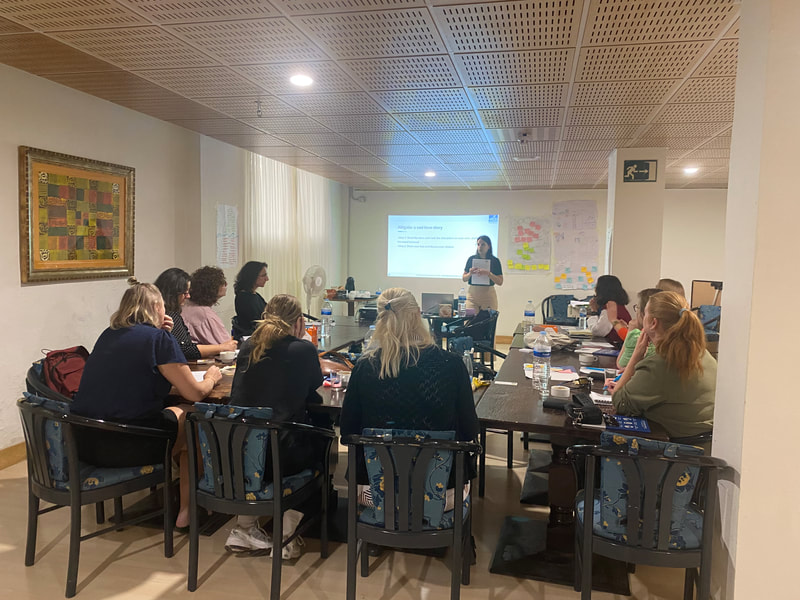
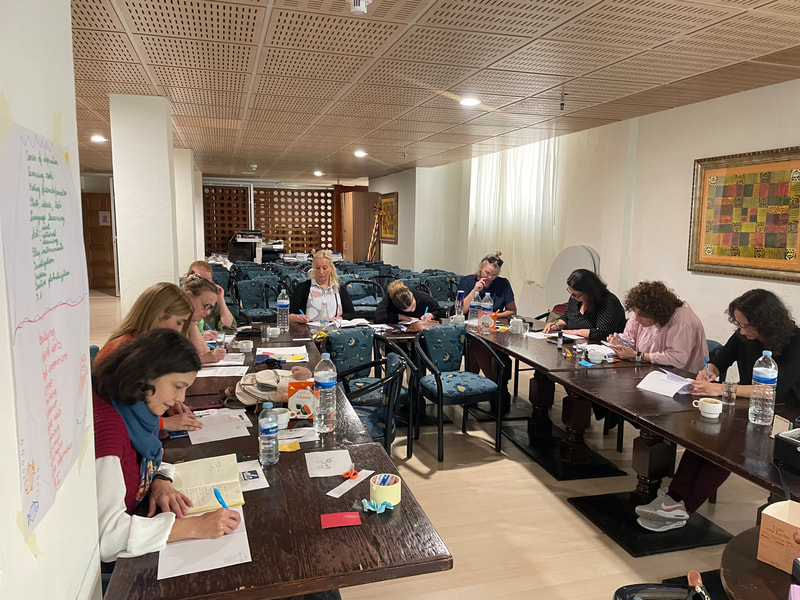
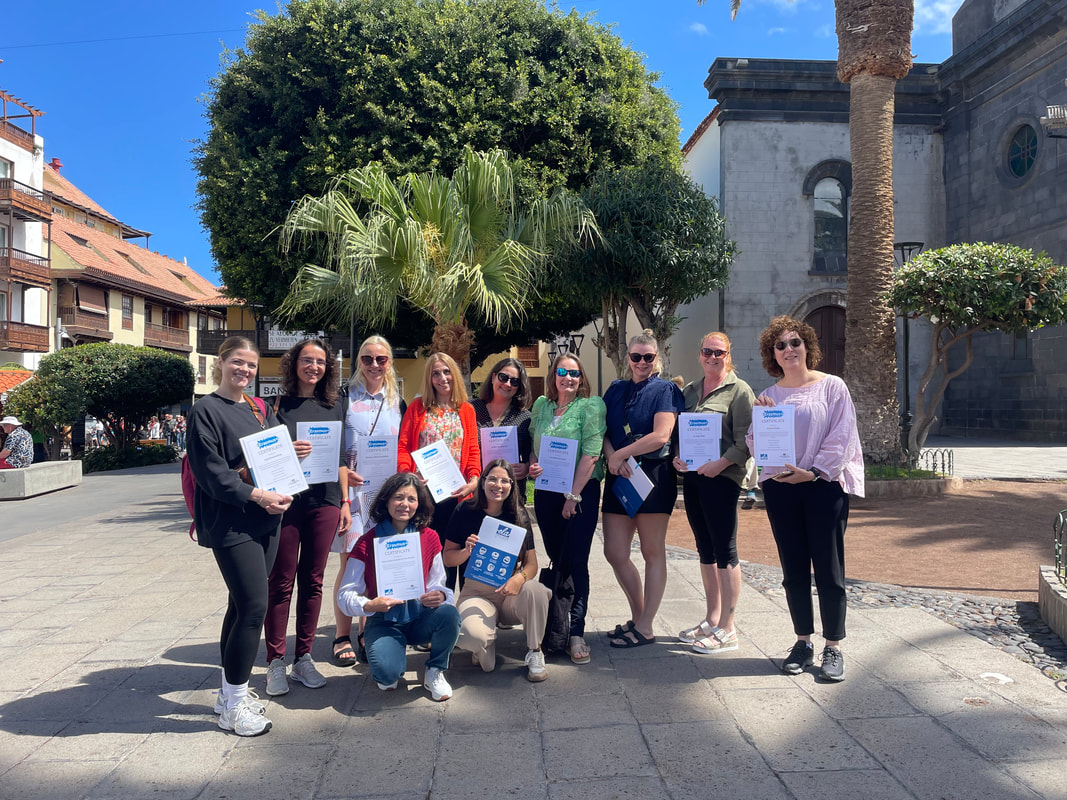
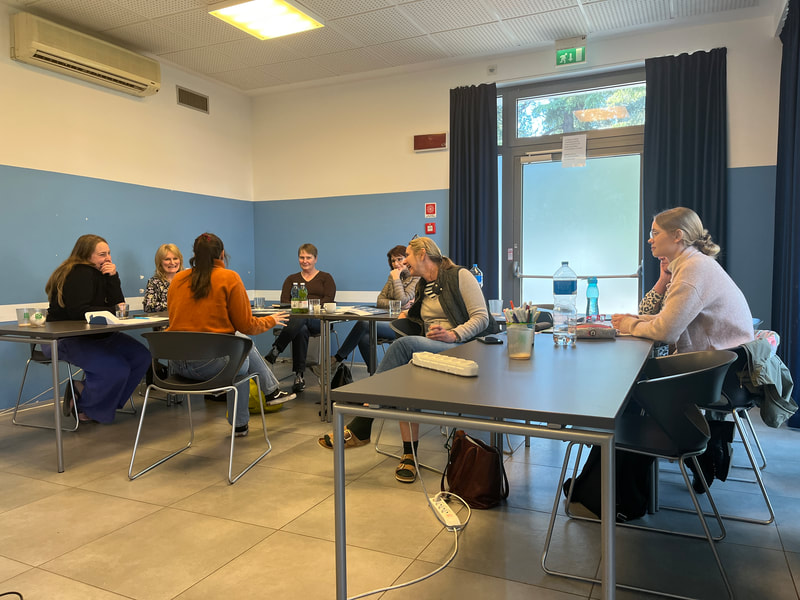
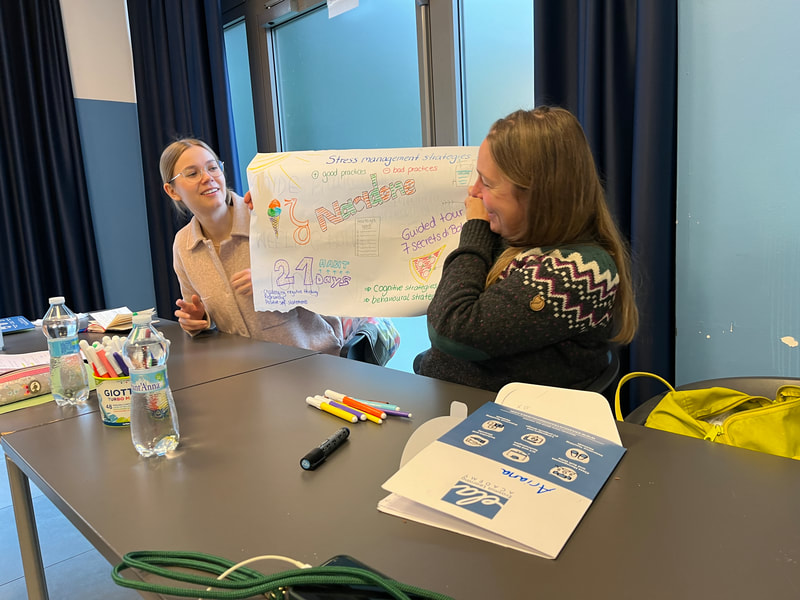
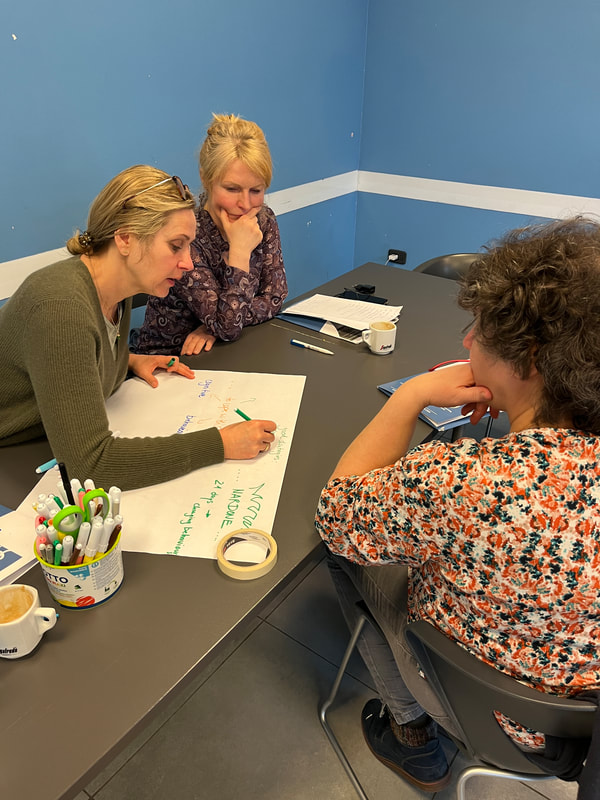
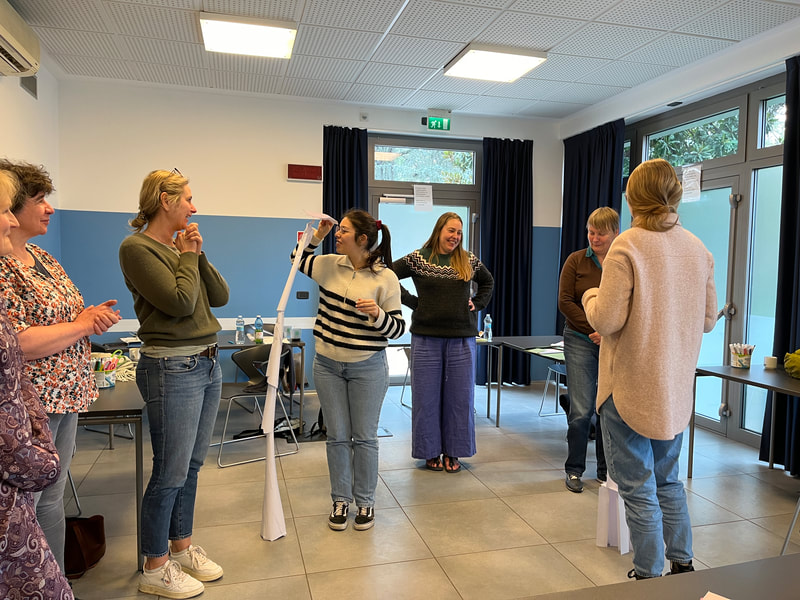
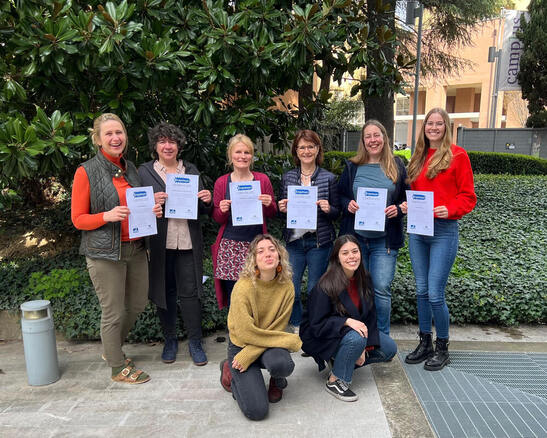
 RSS Feed
RSS Feed









